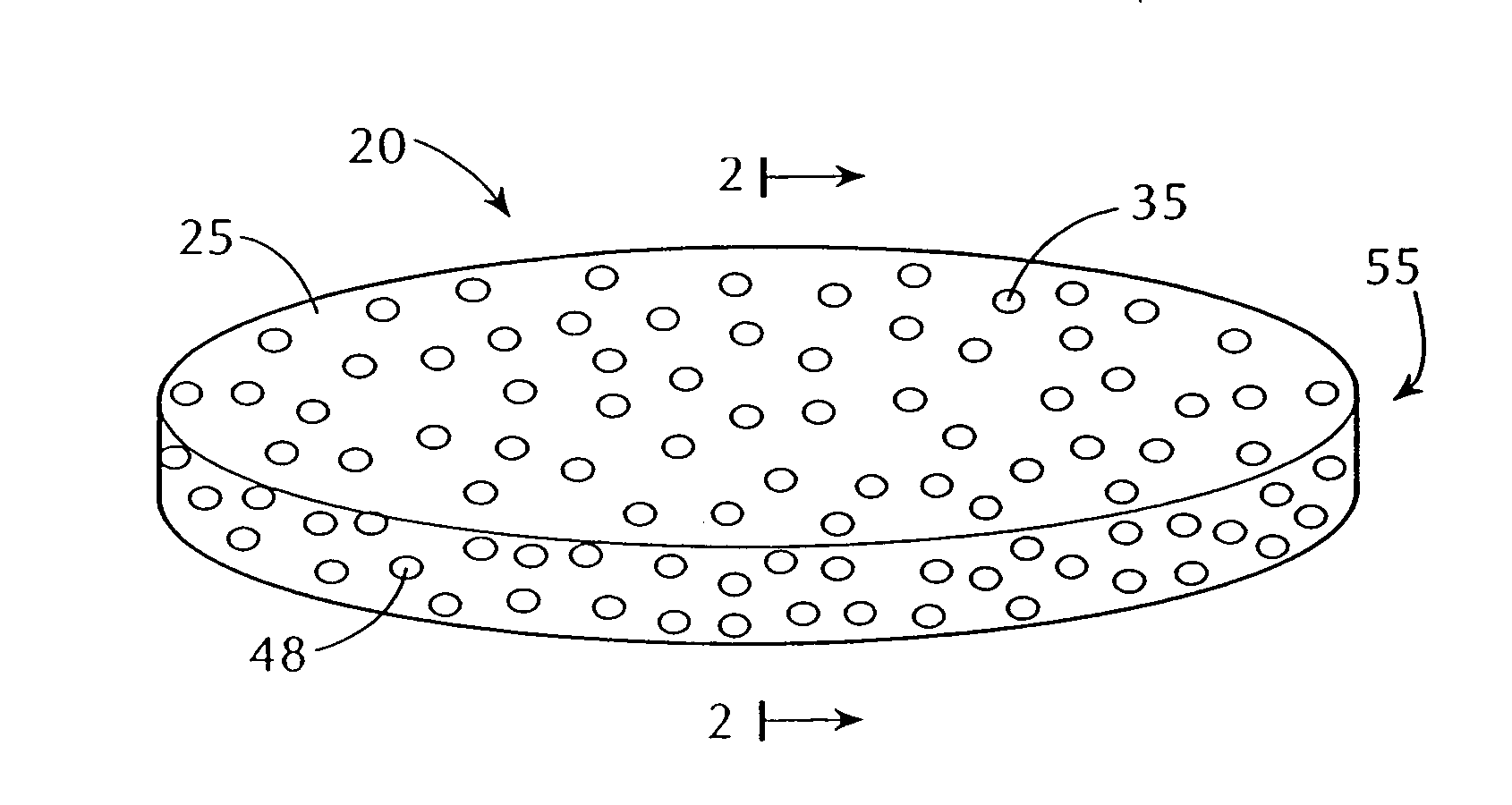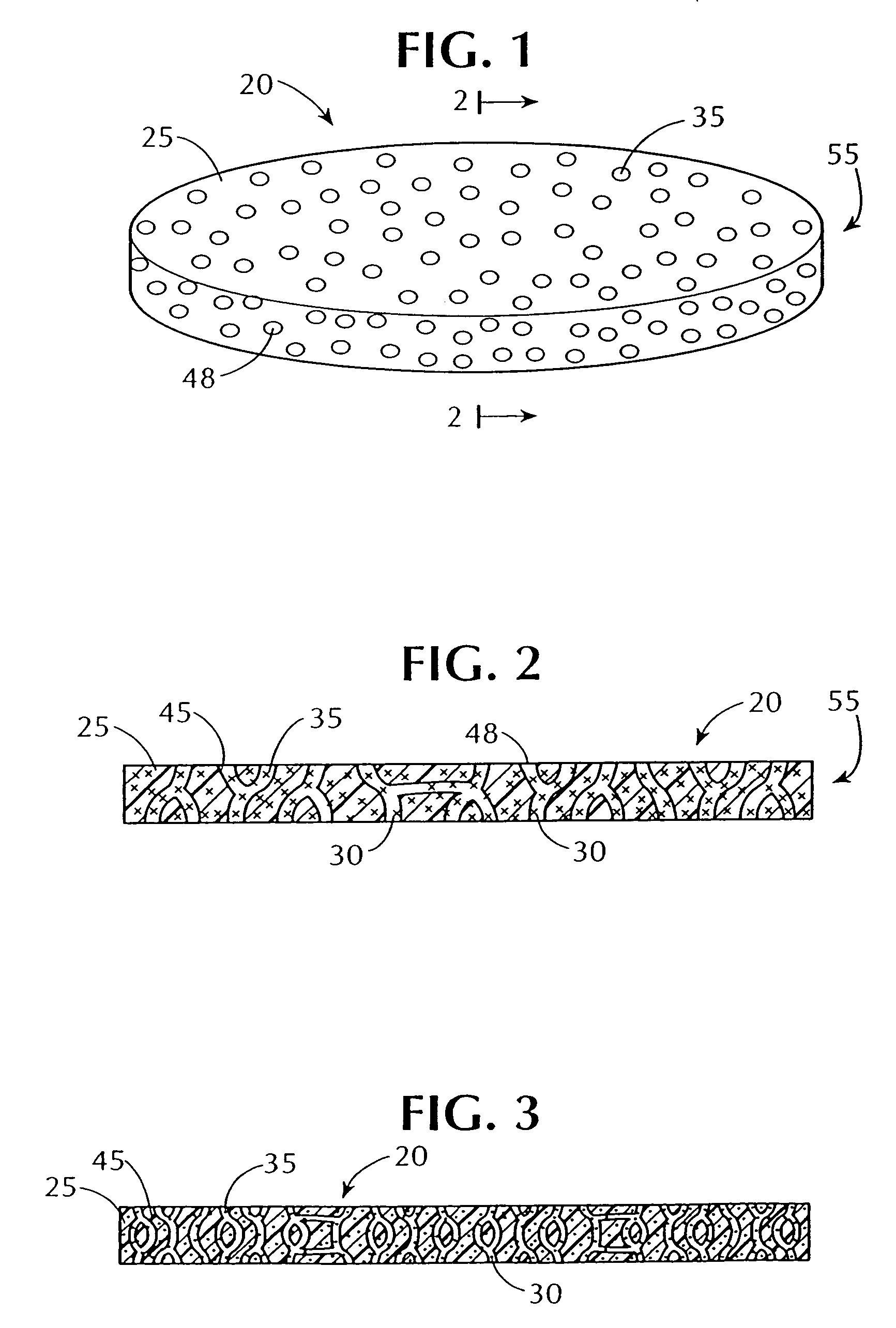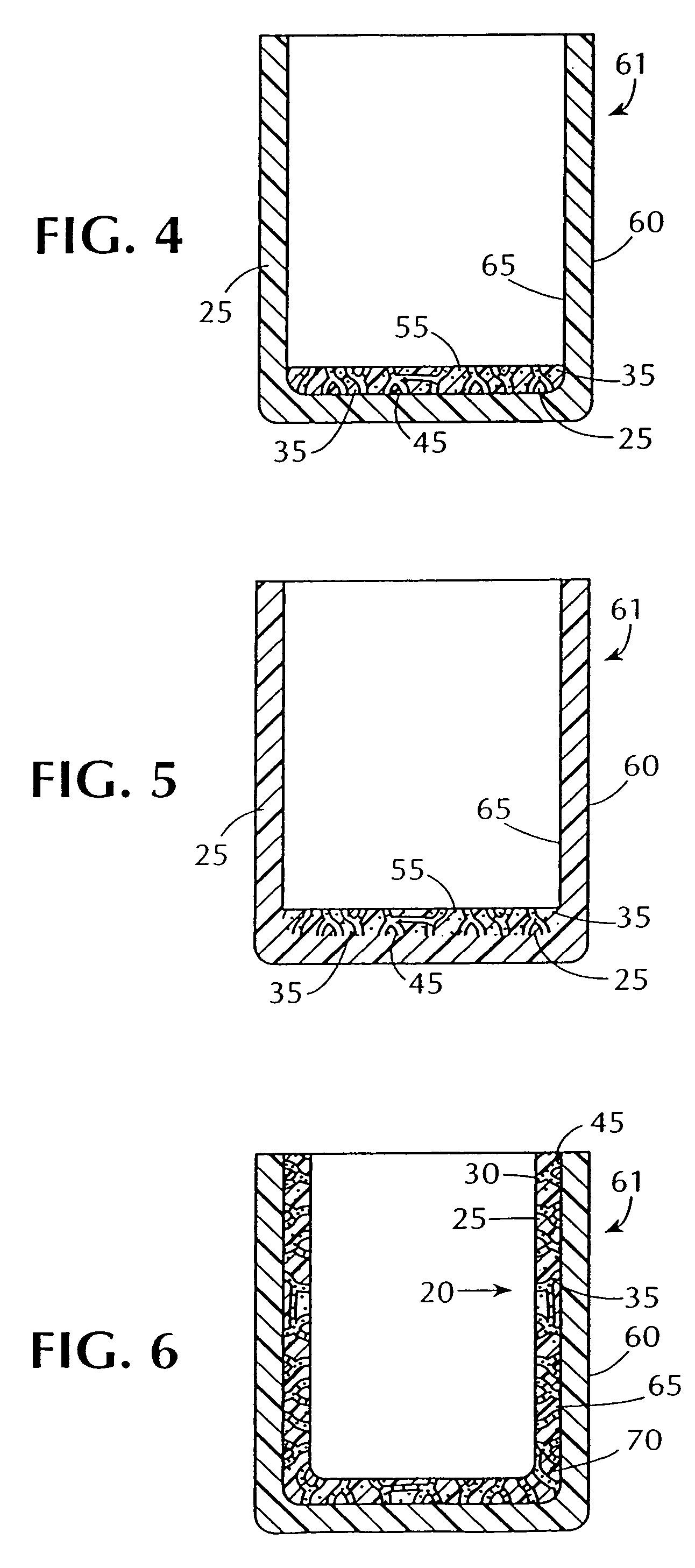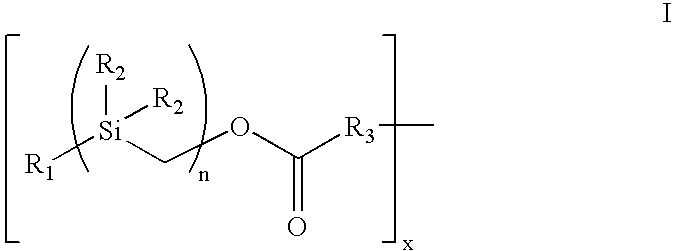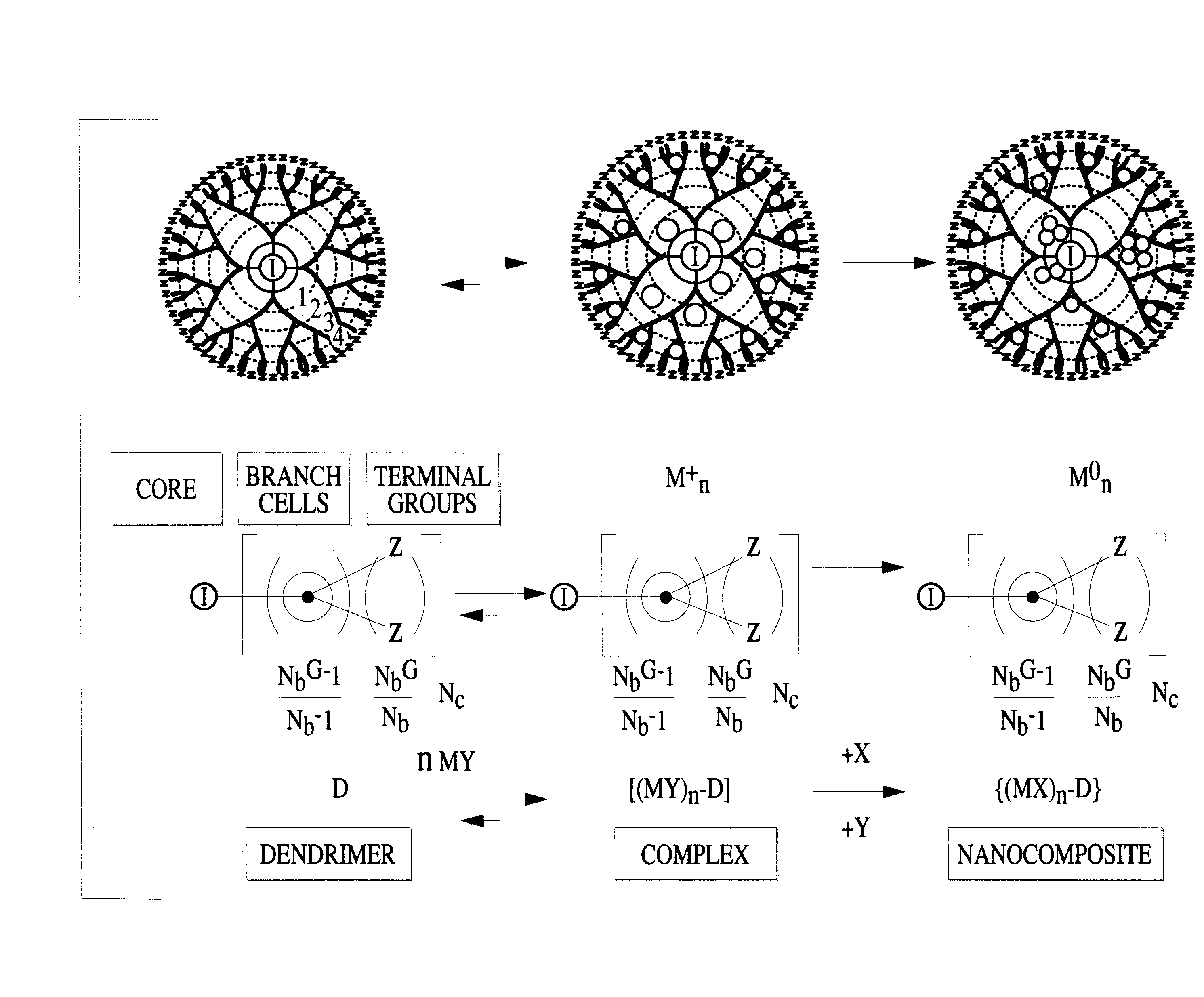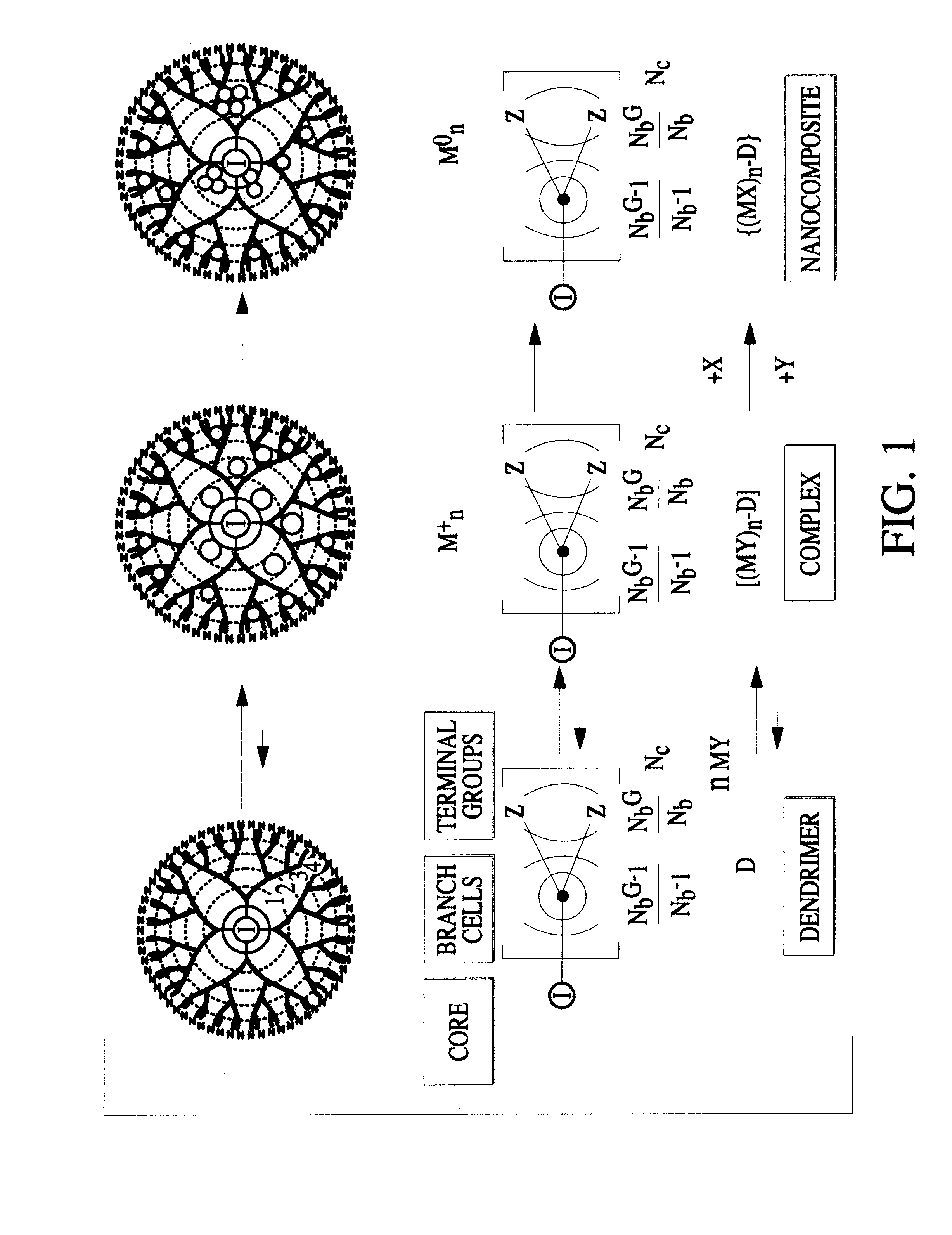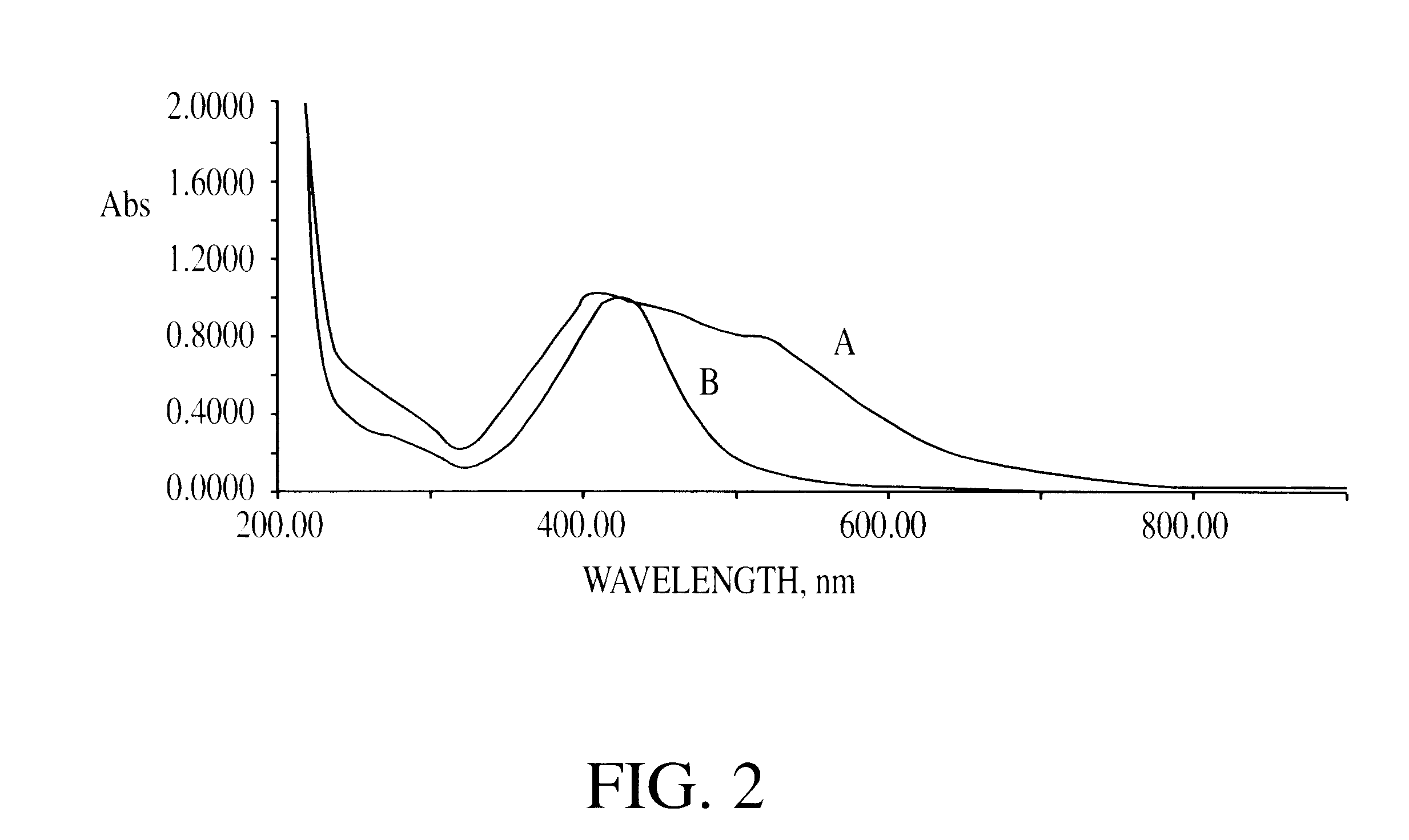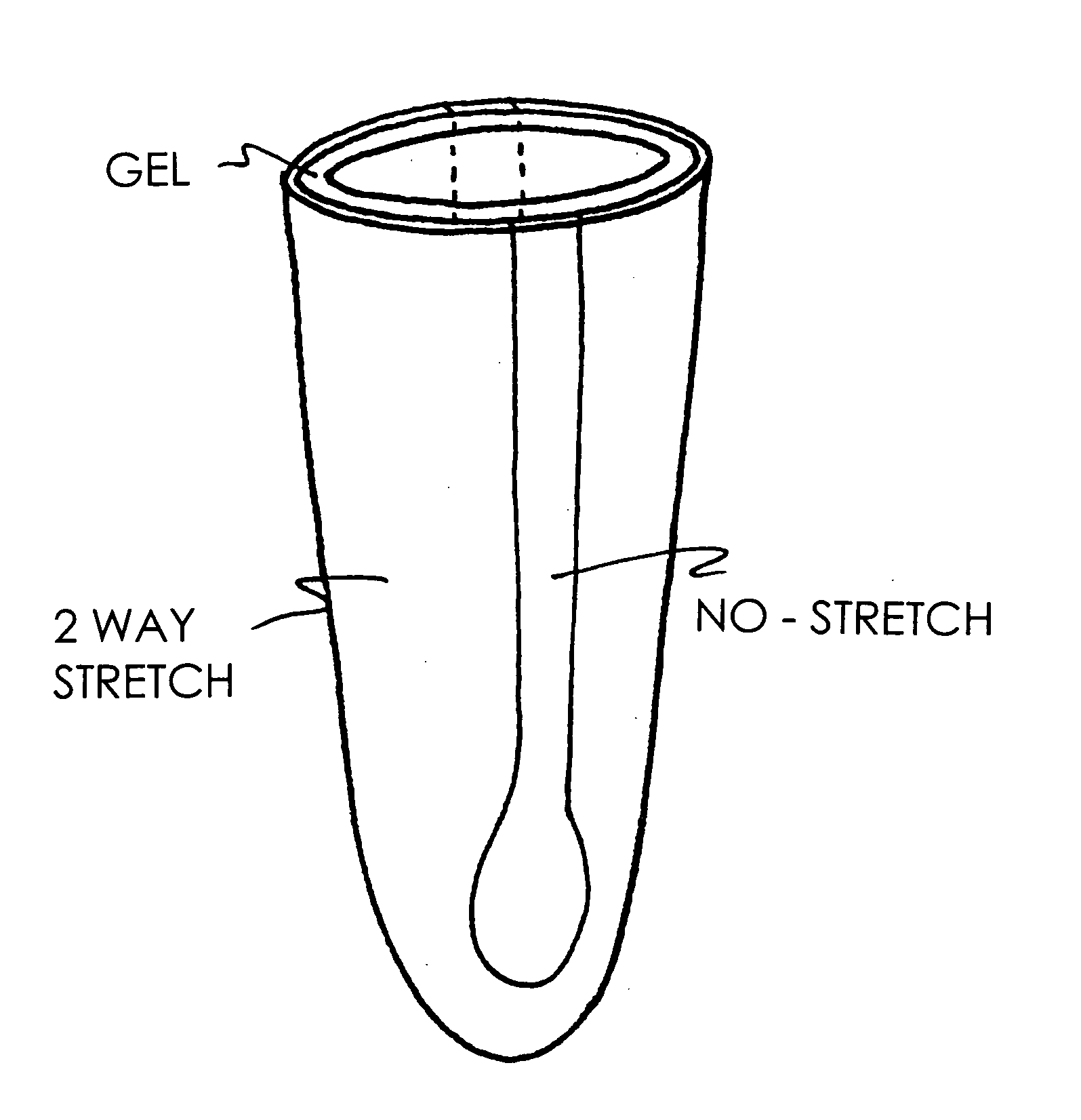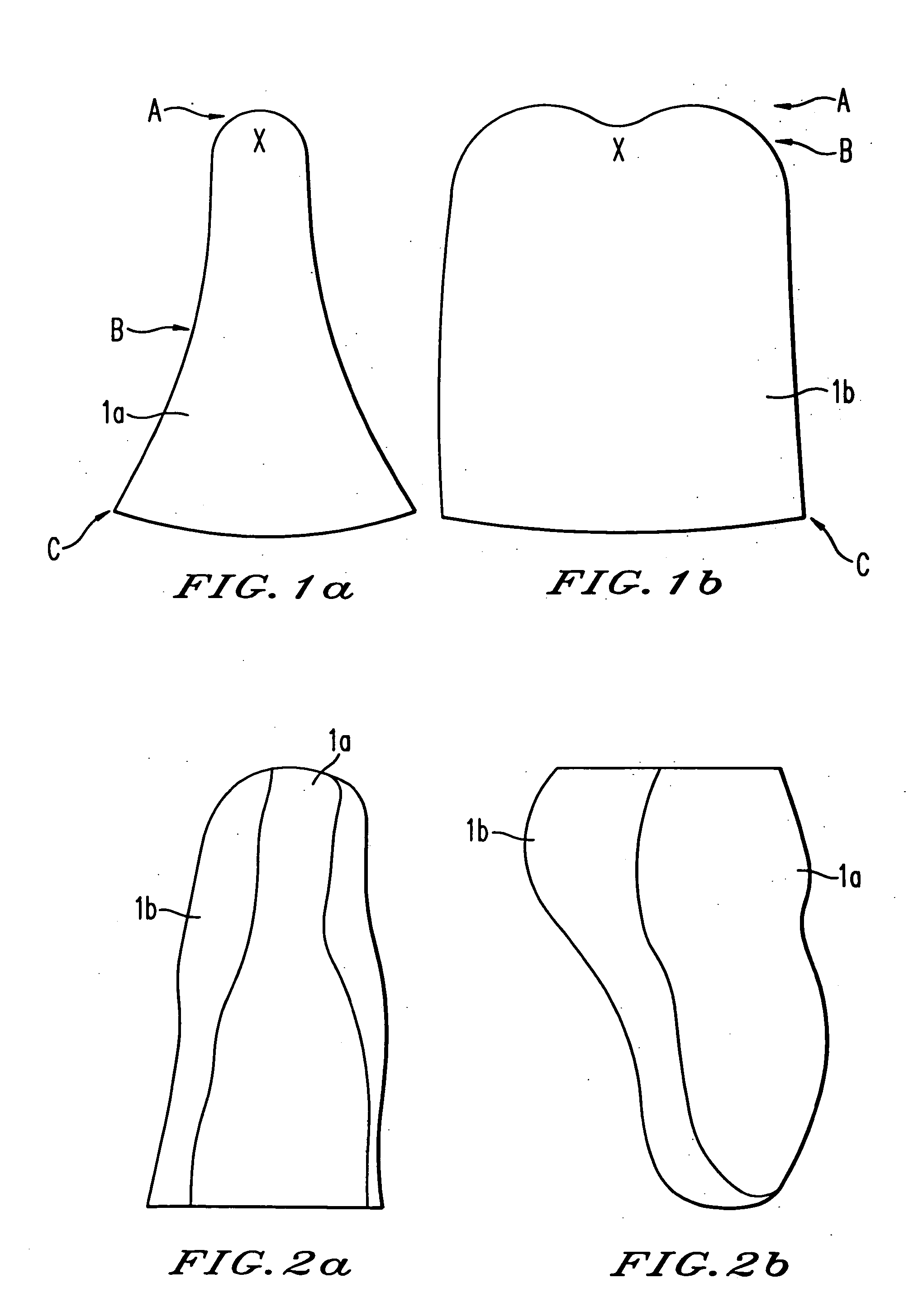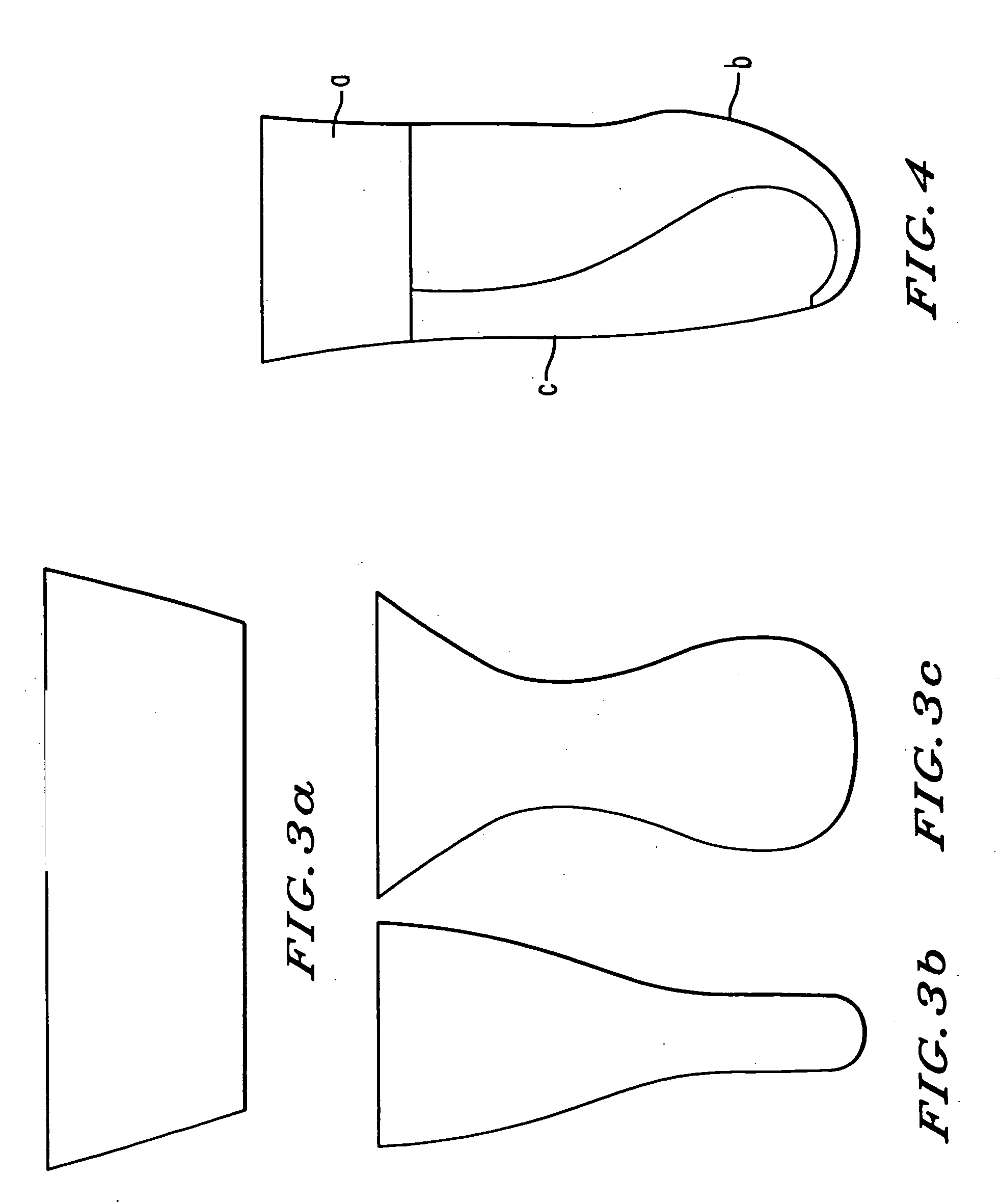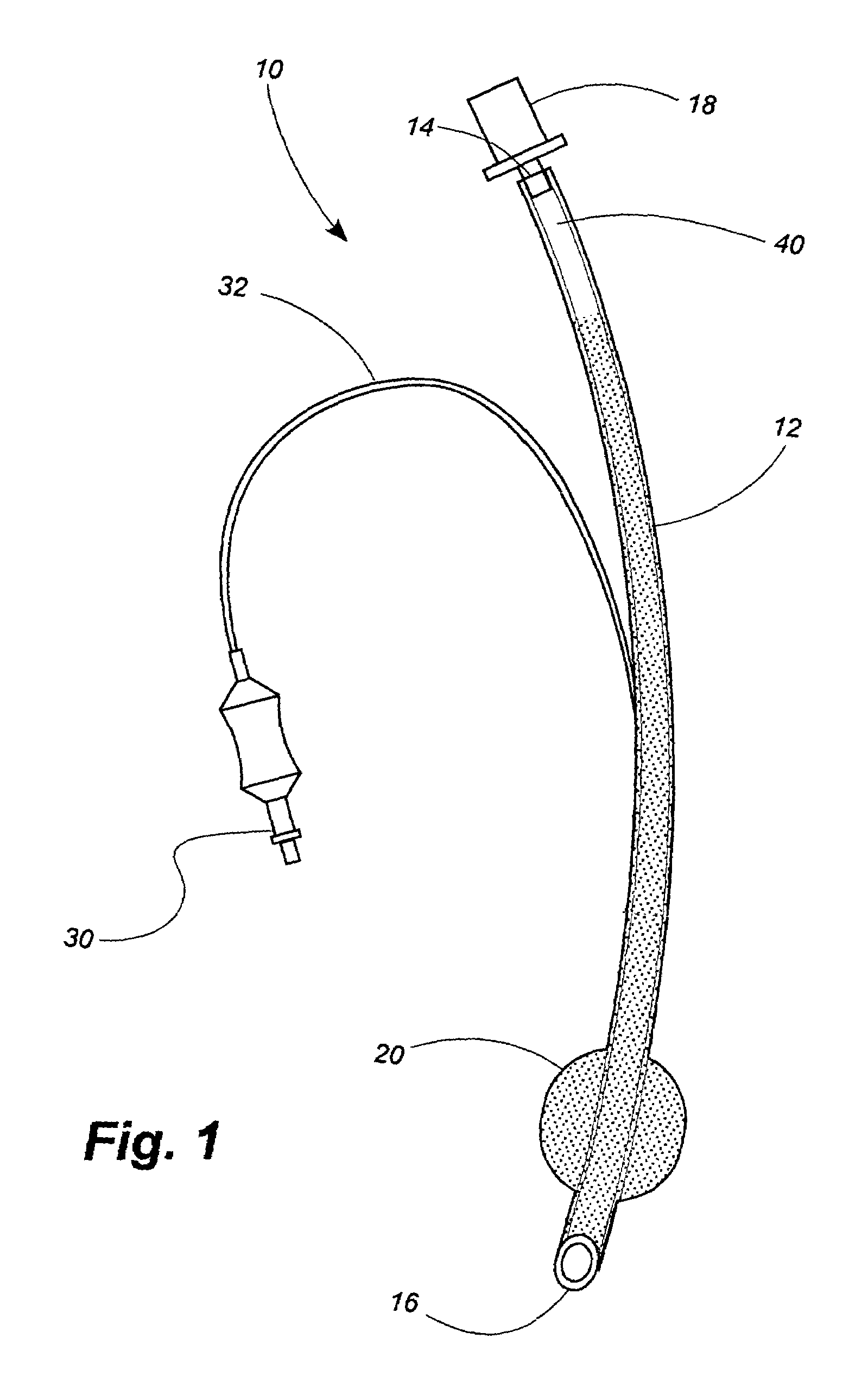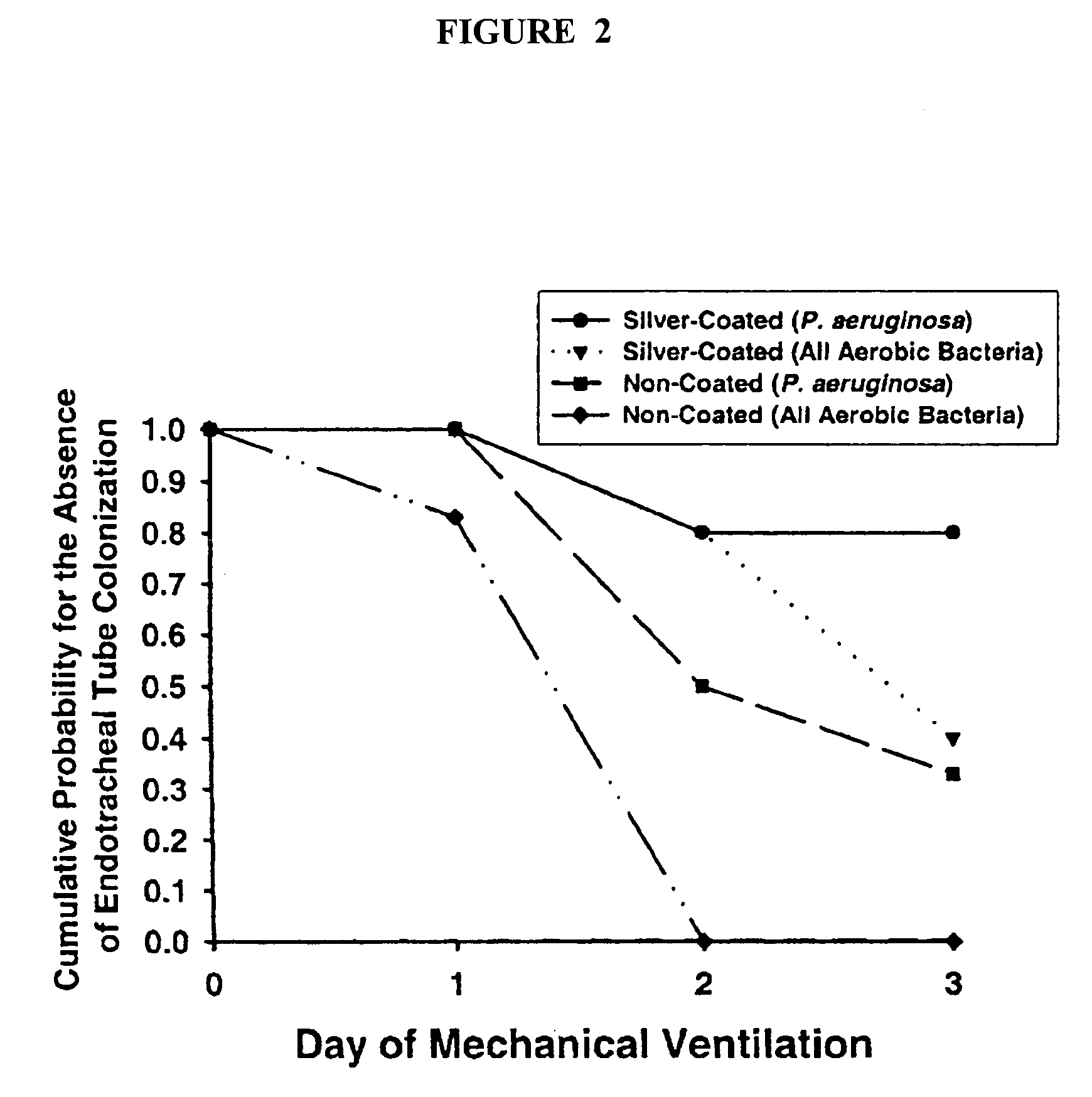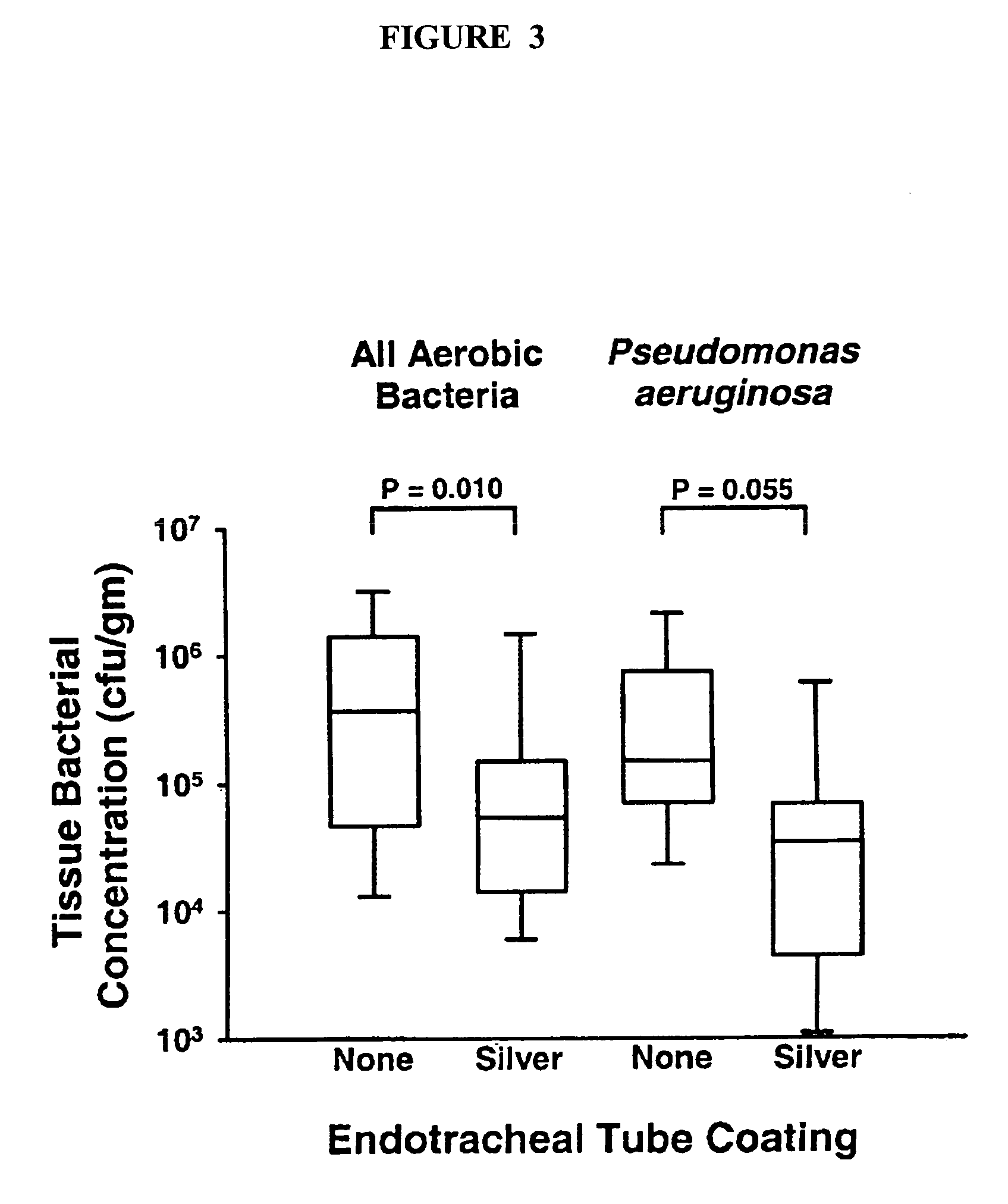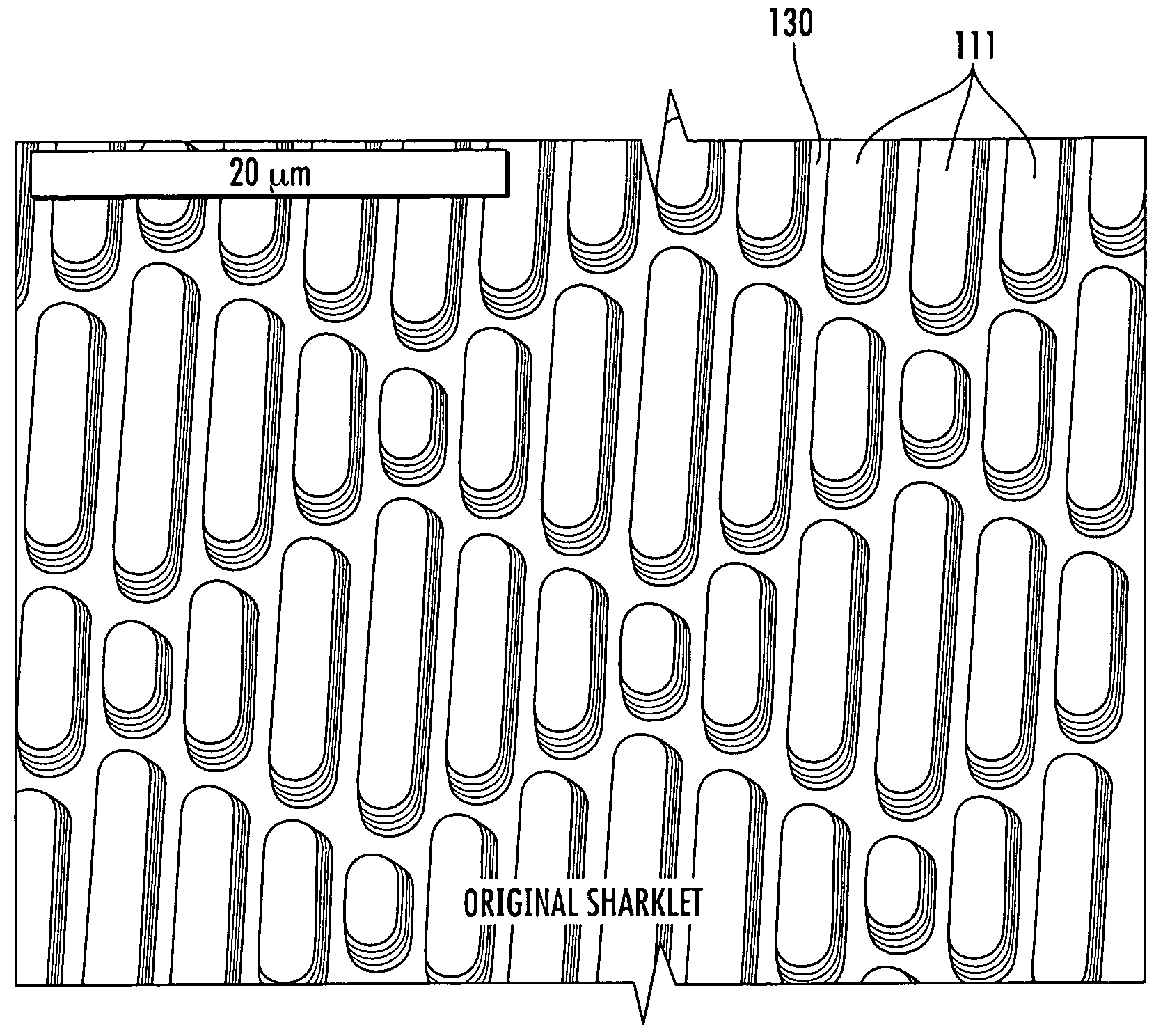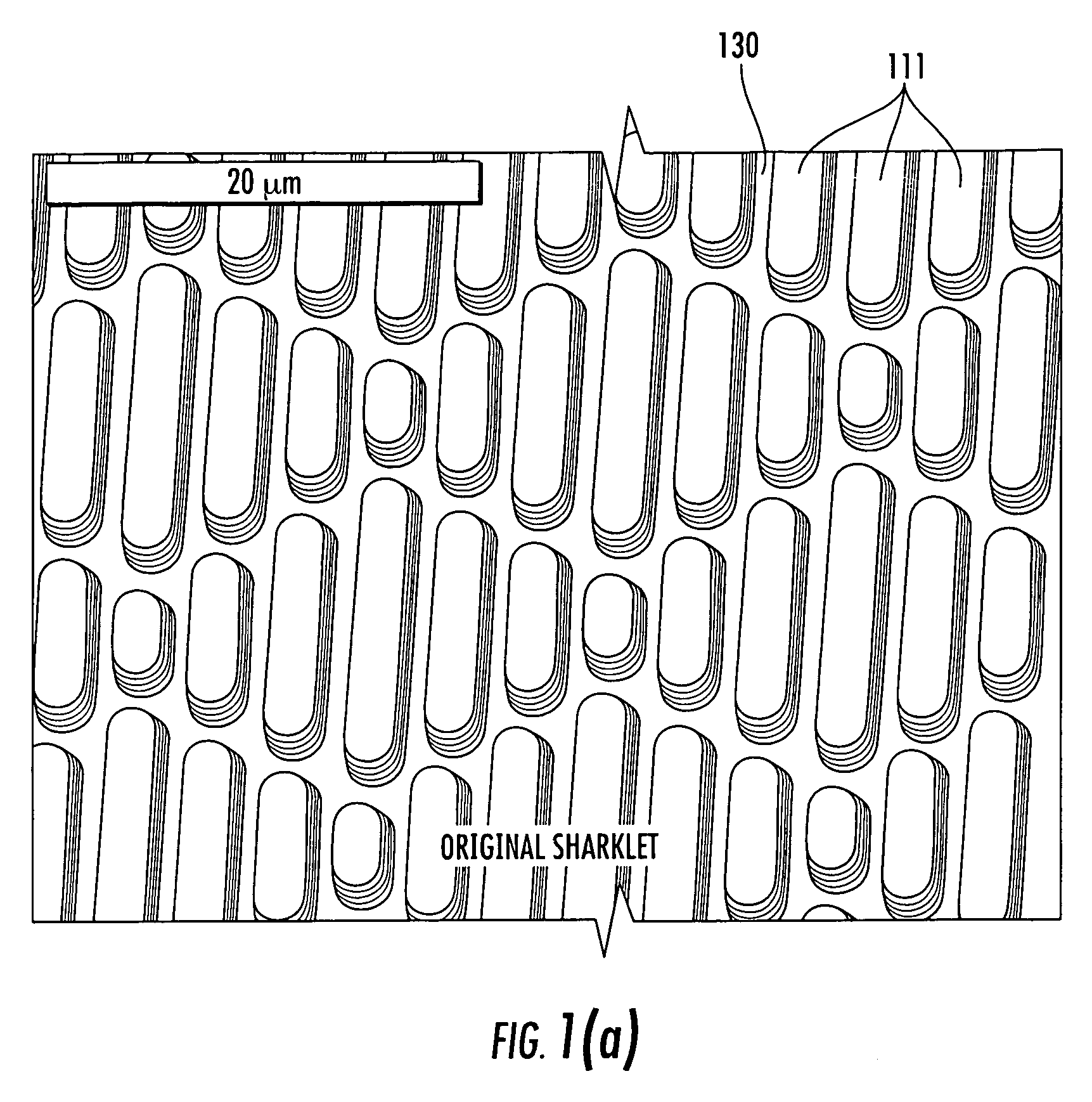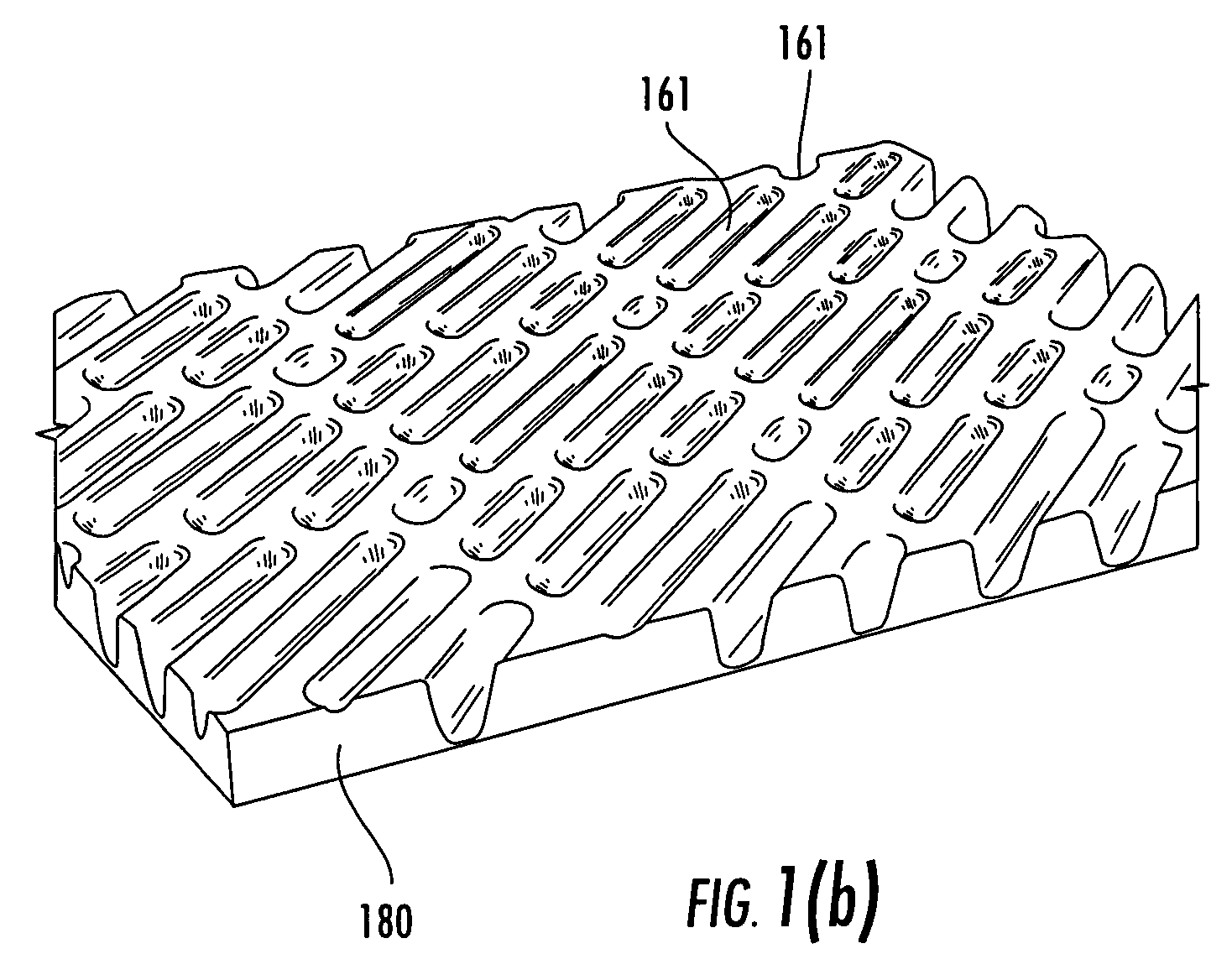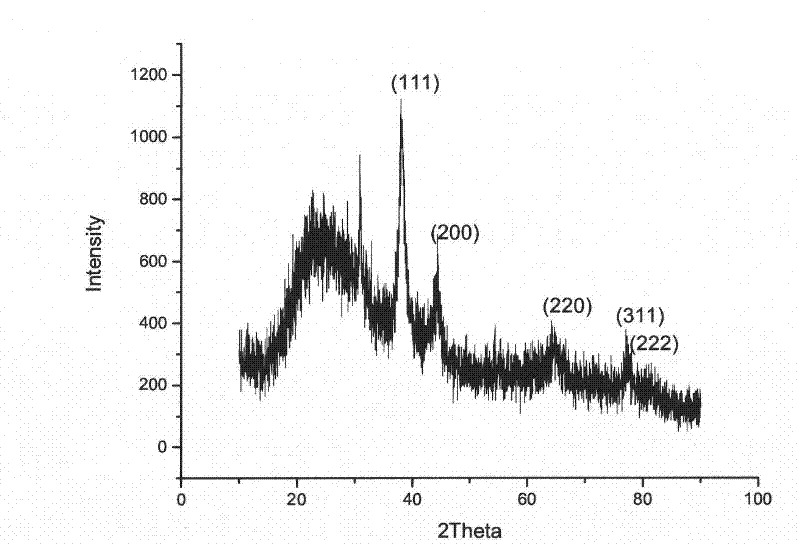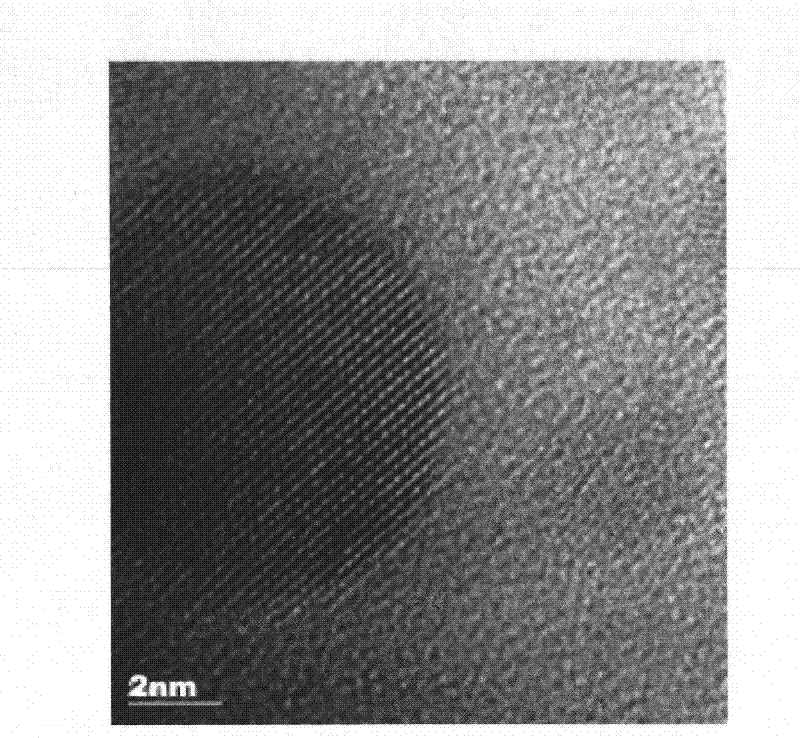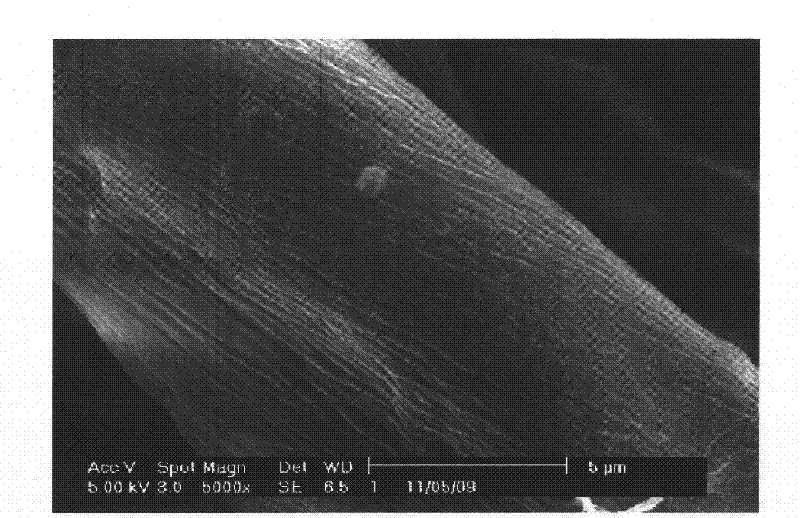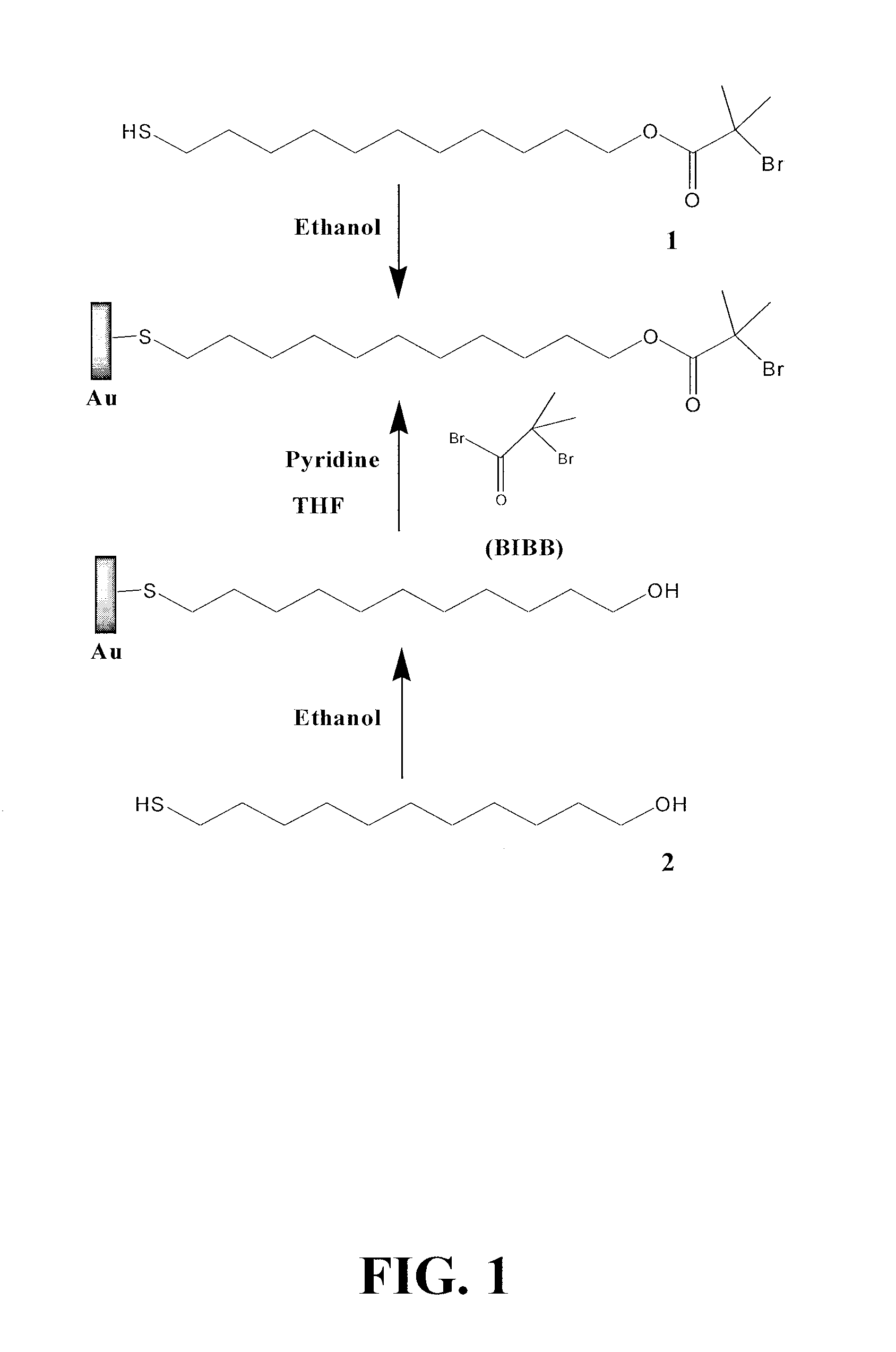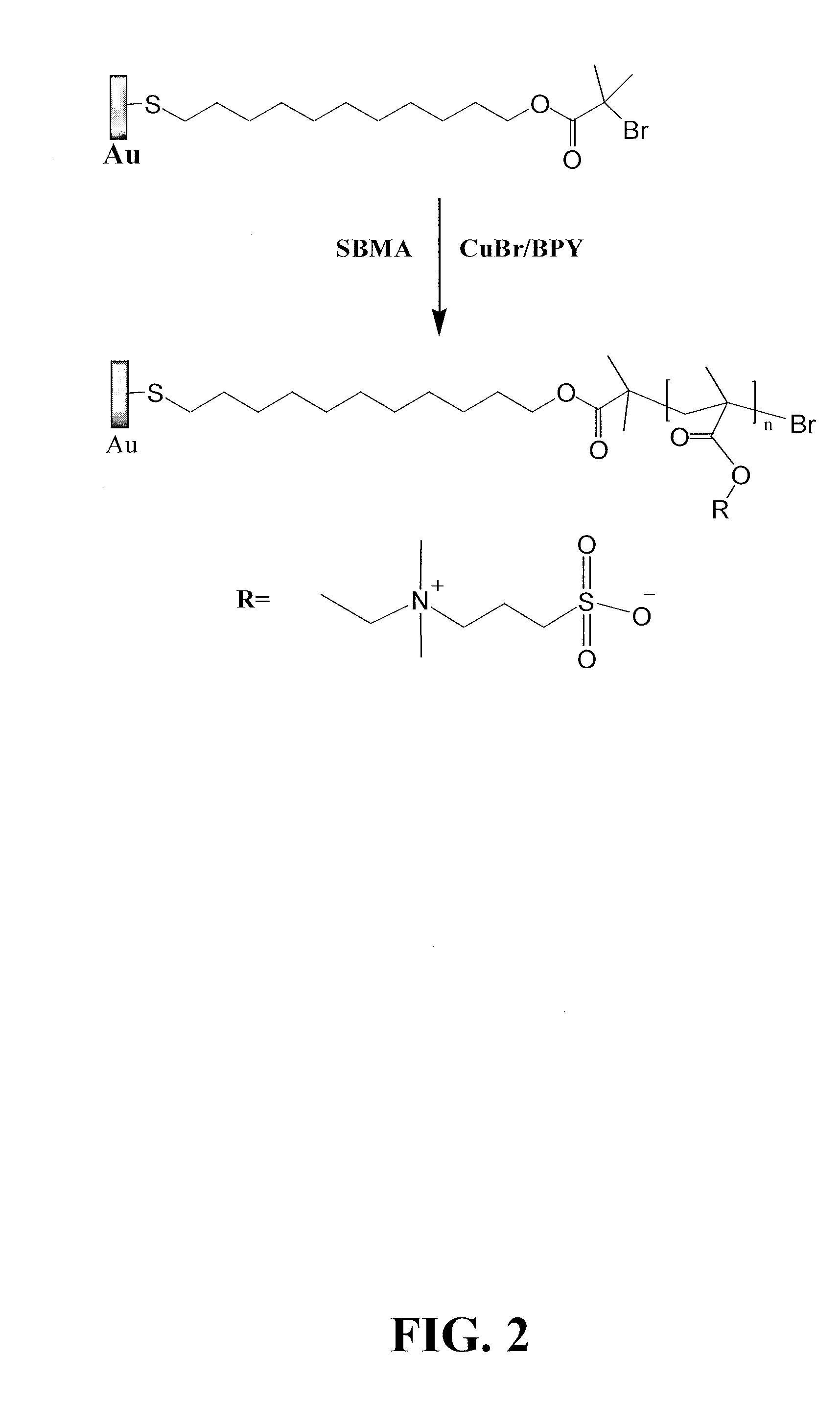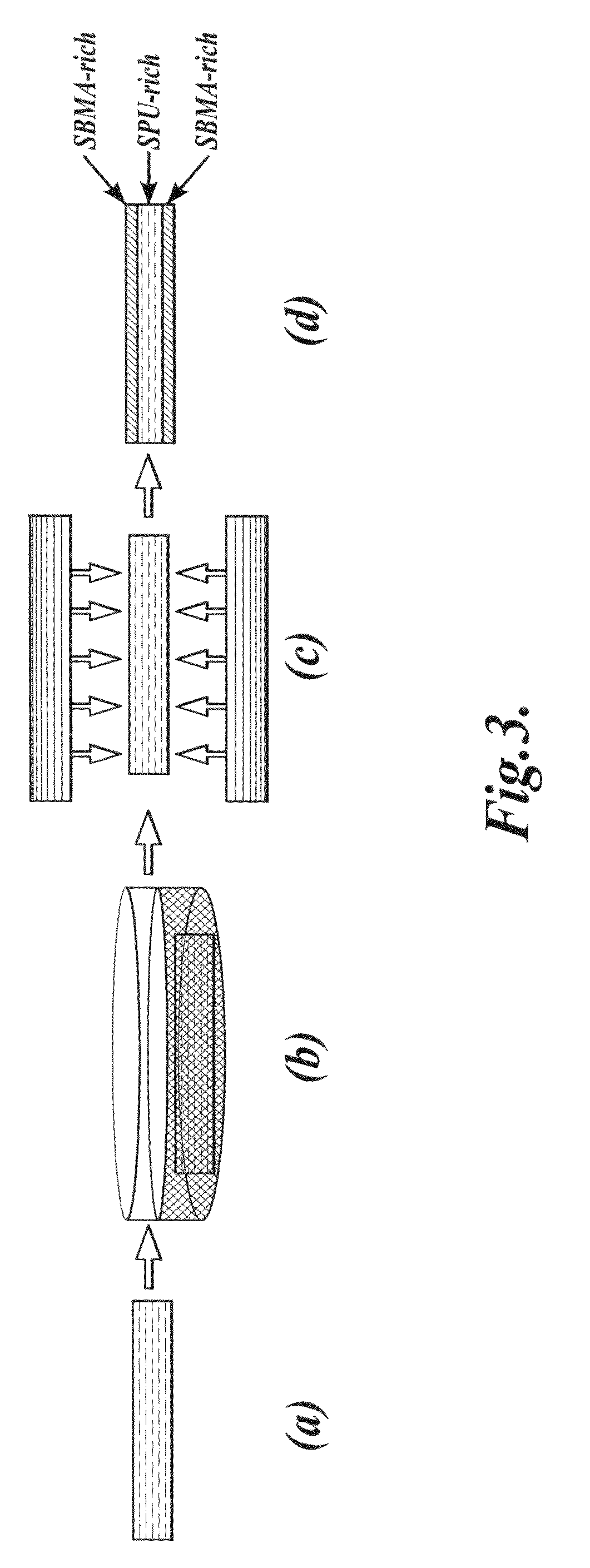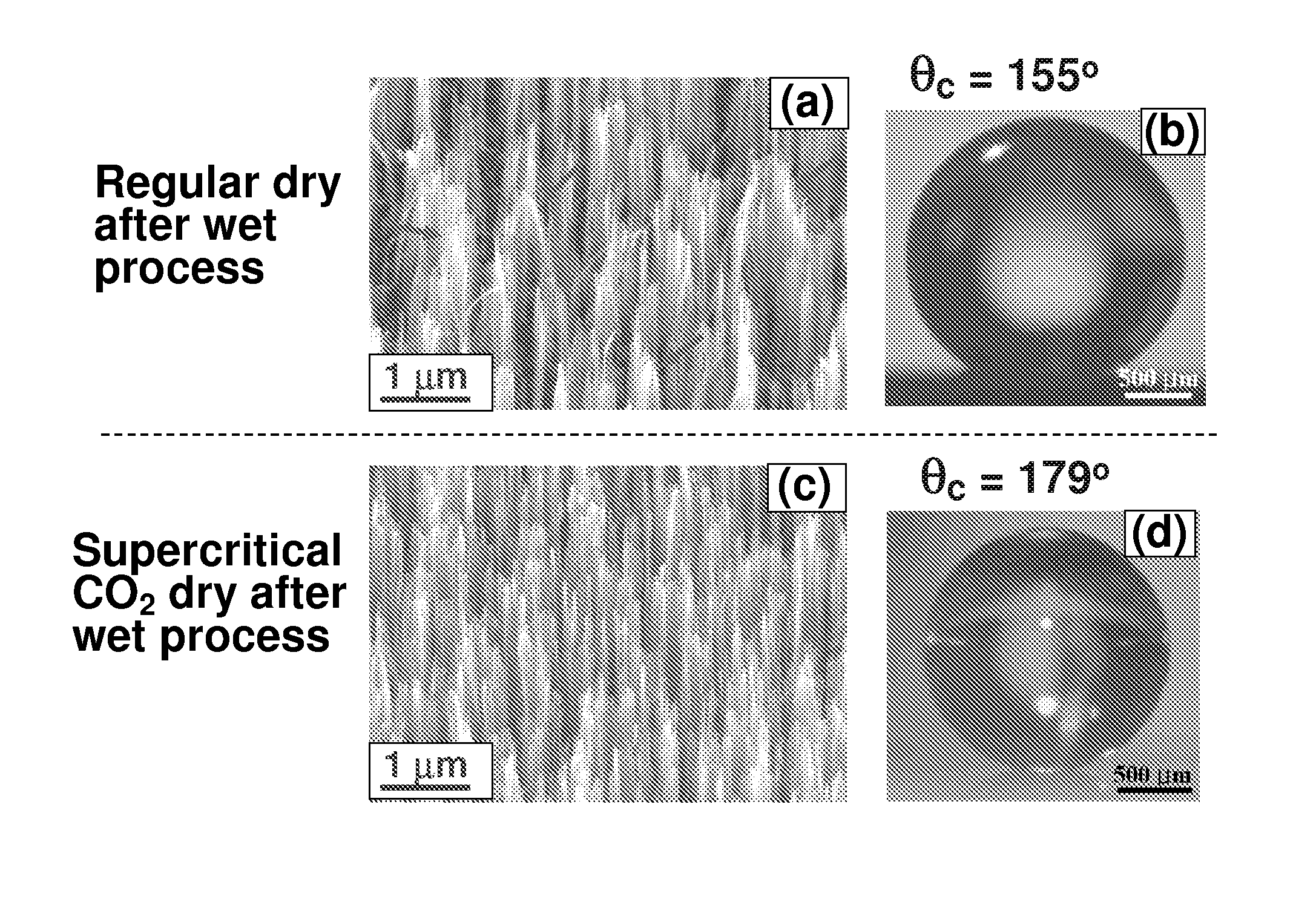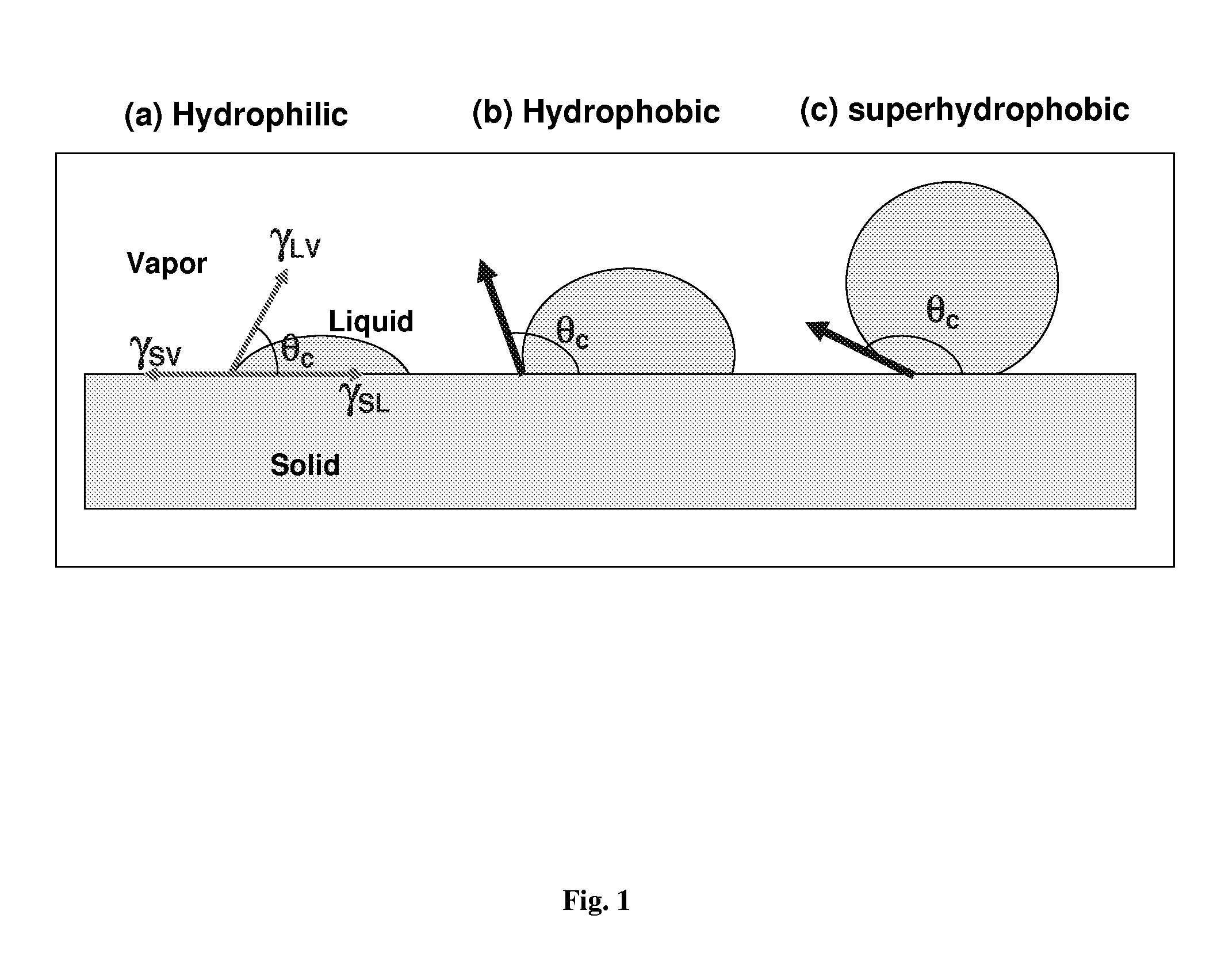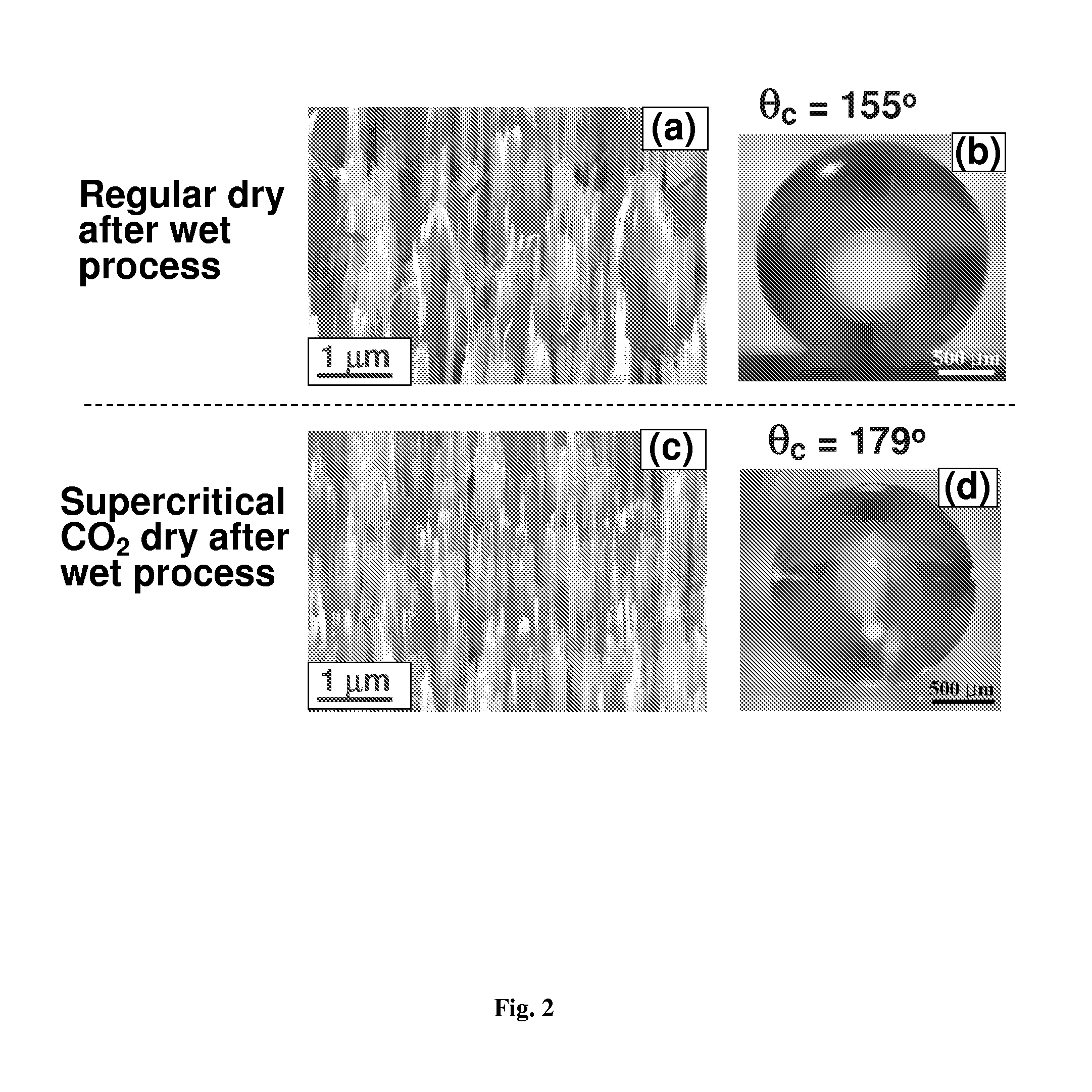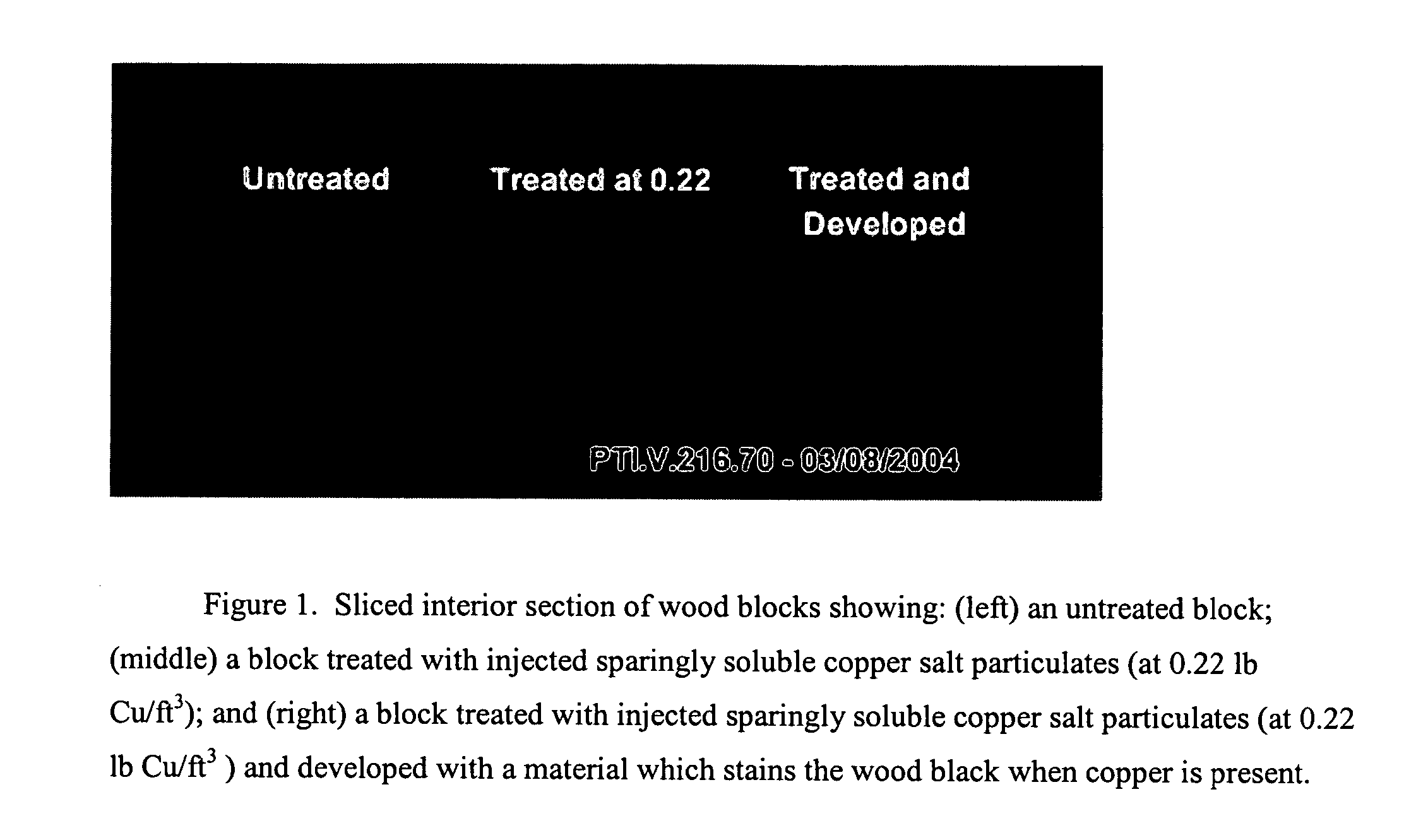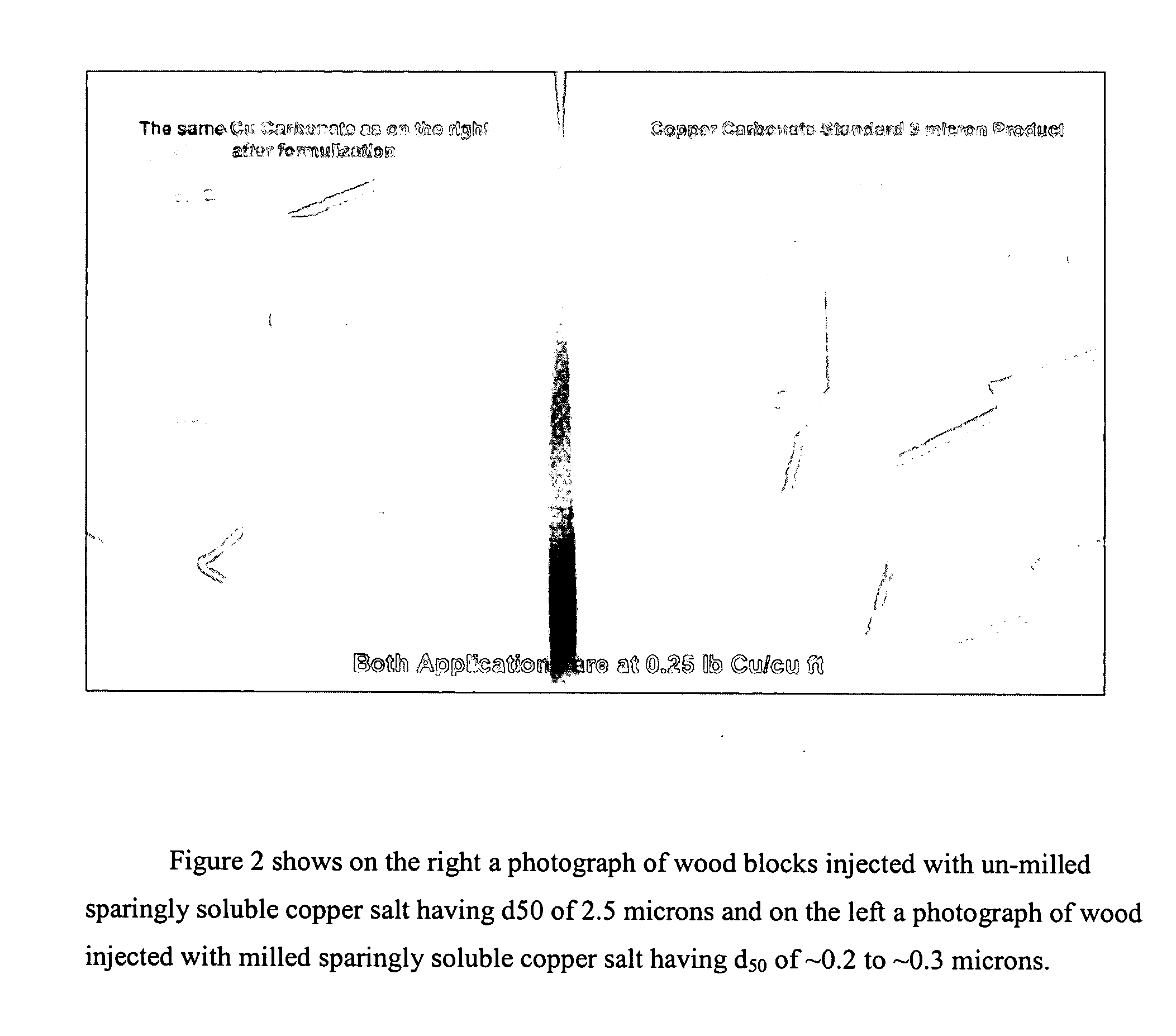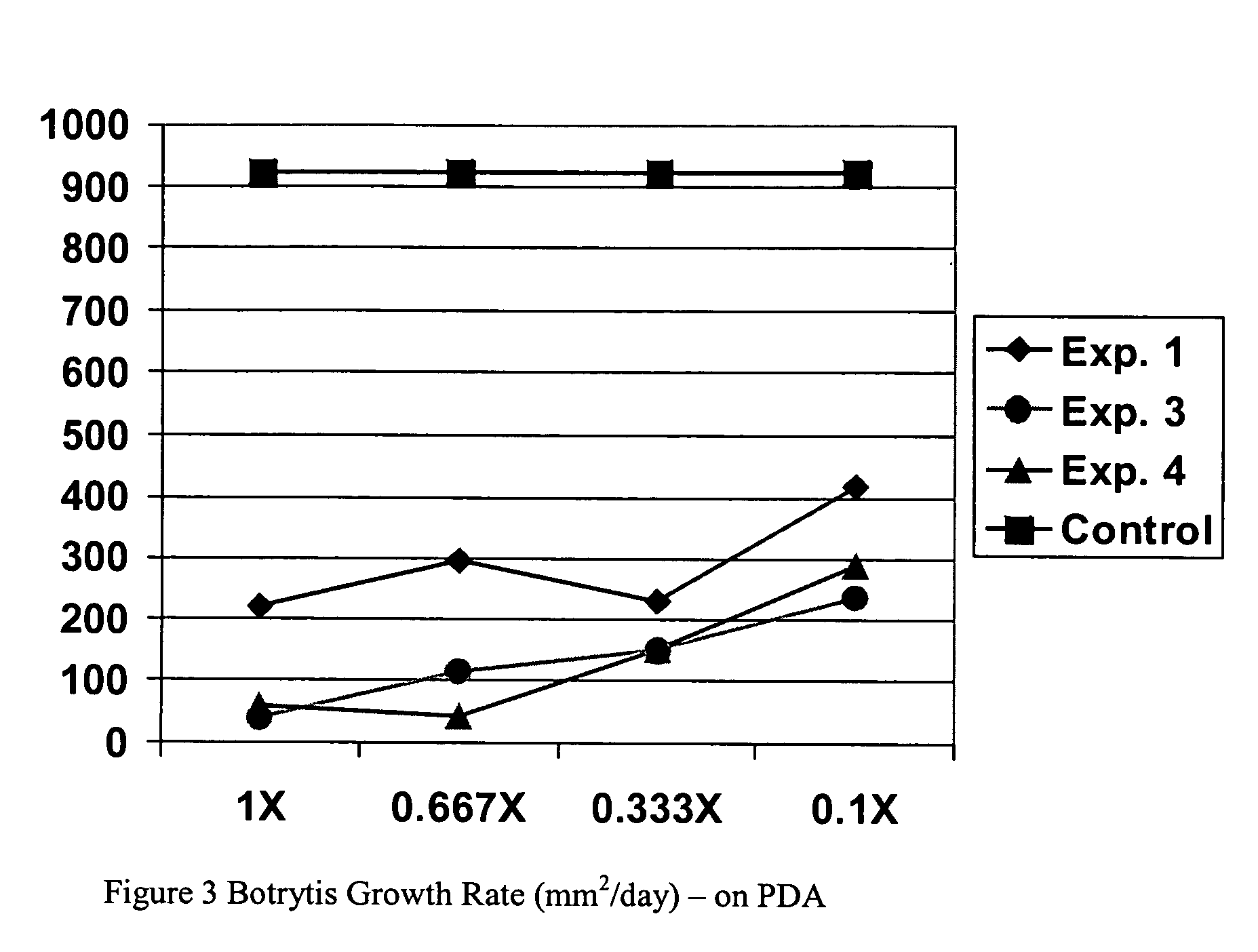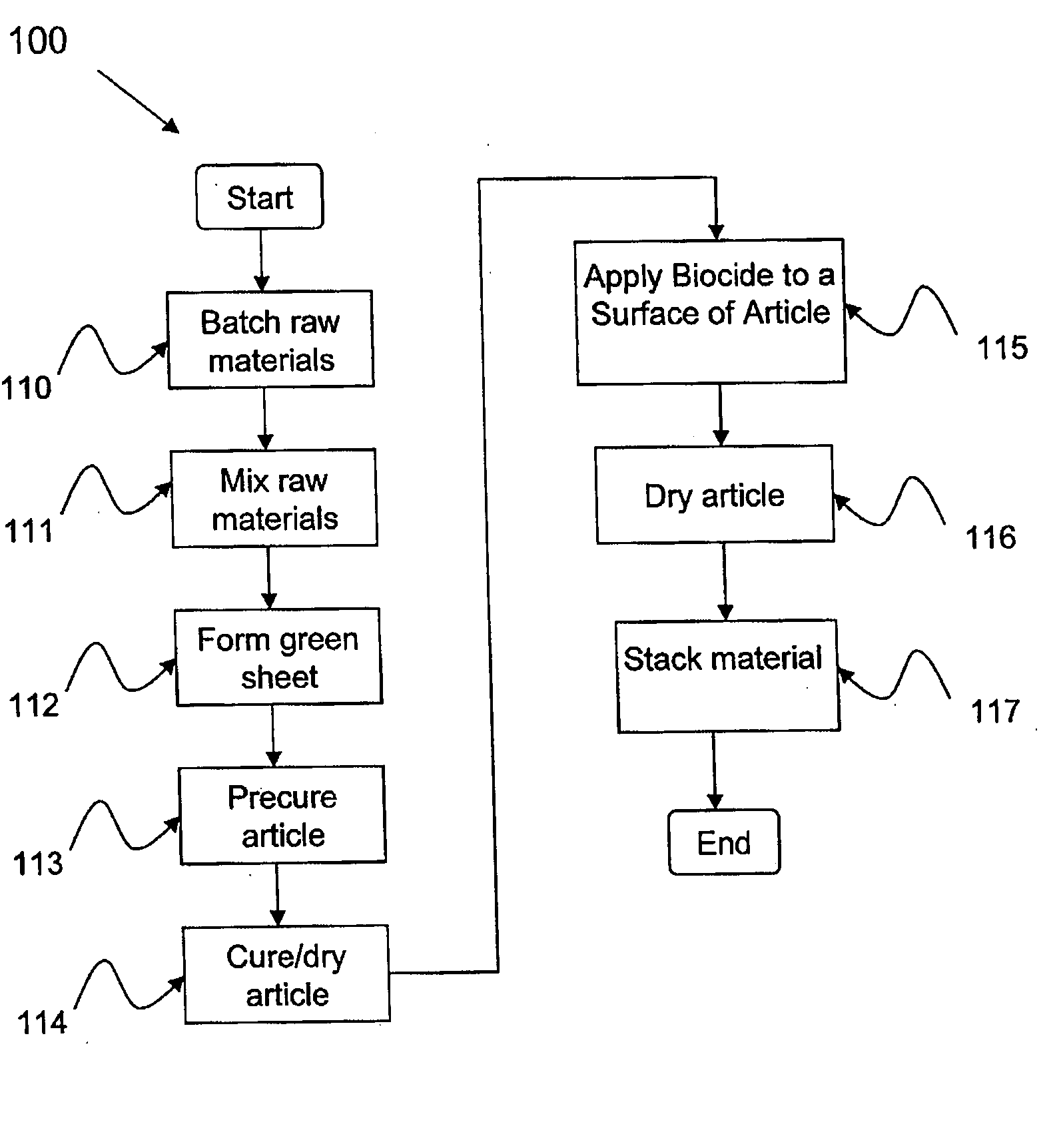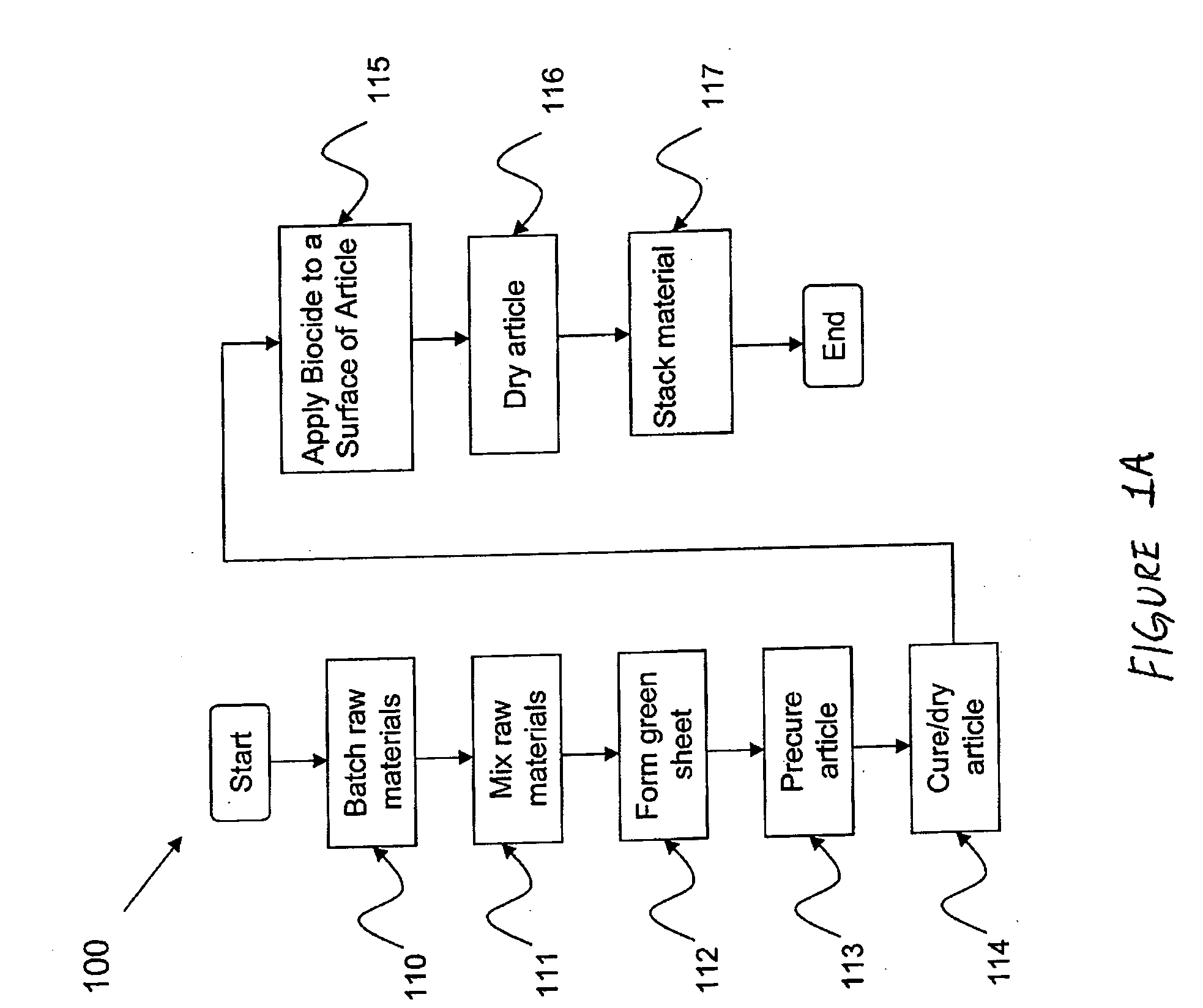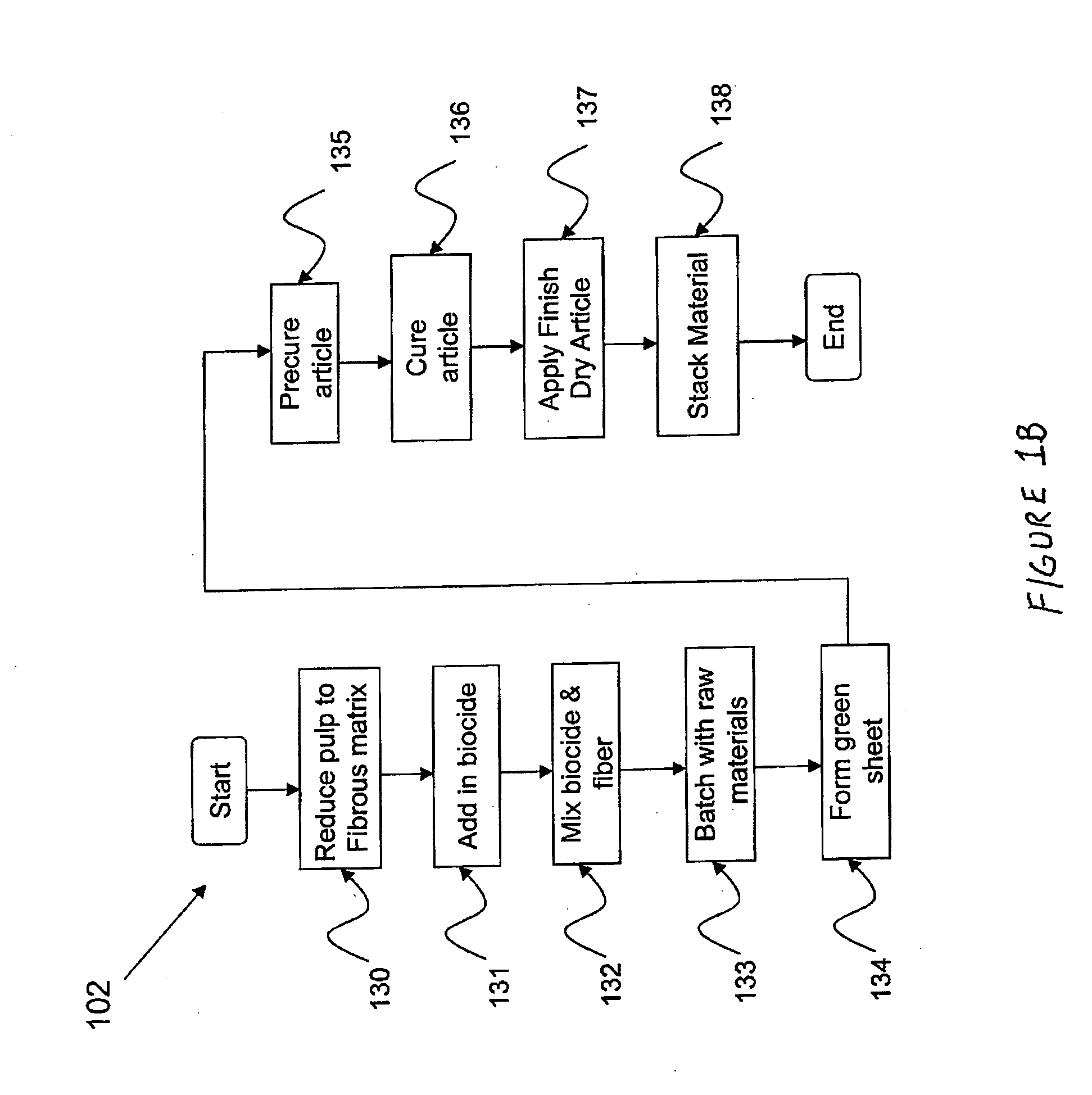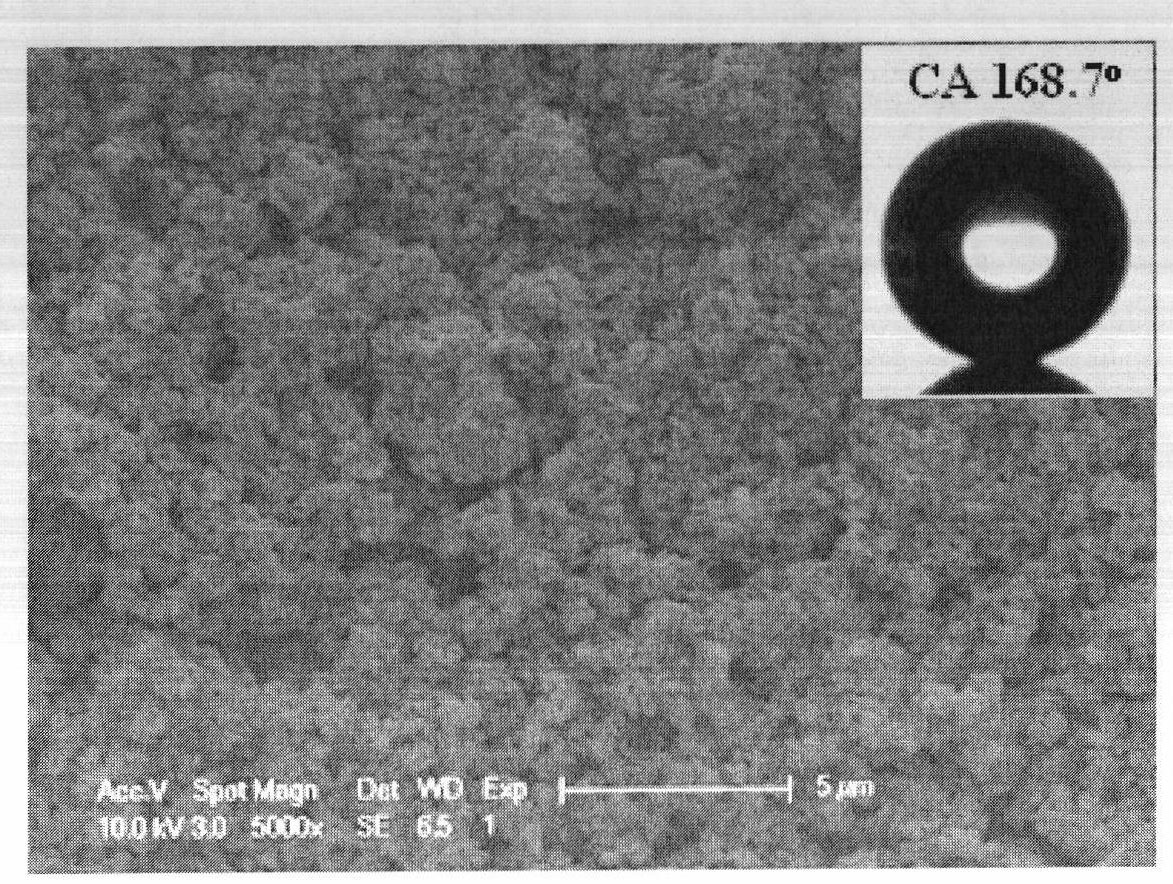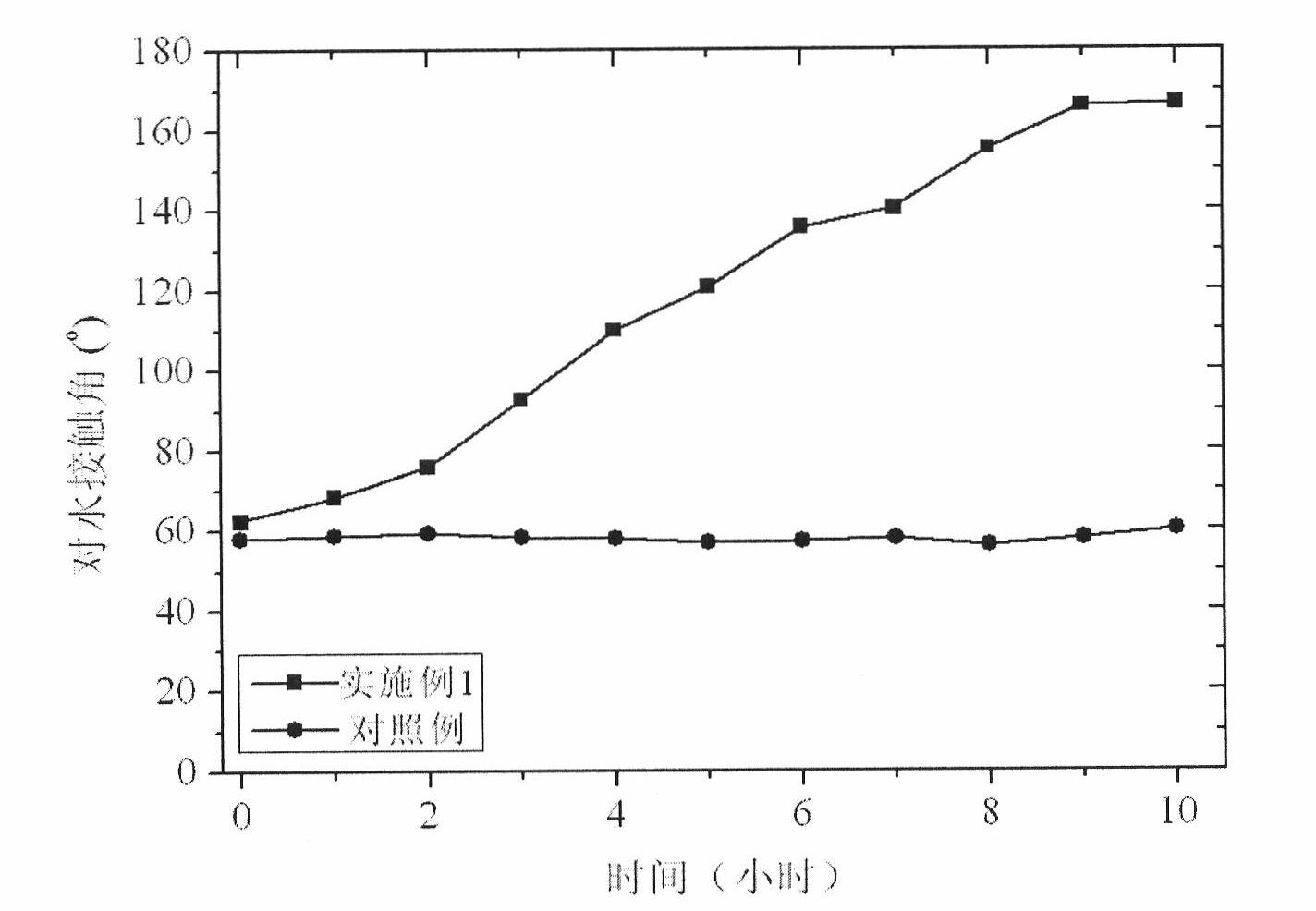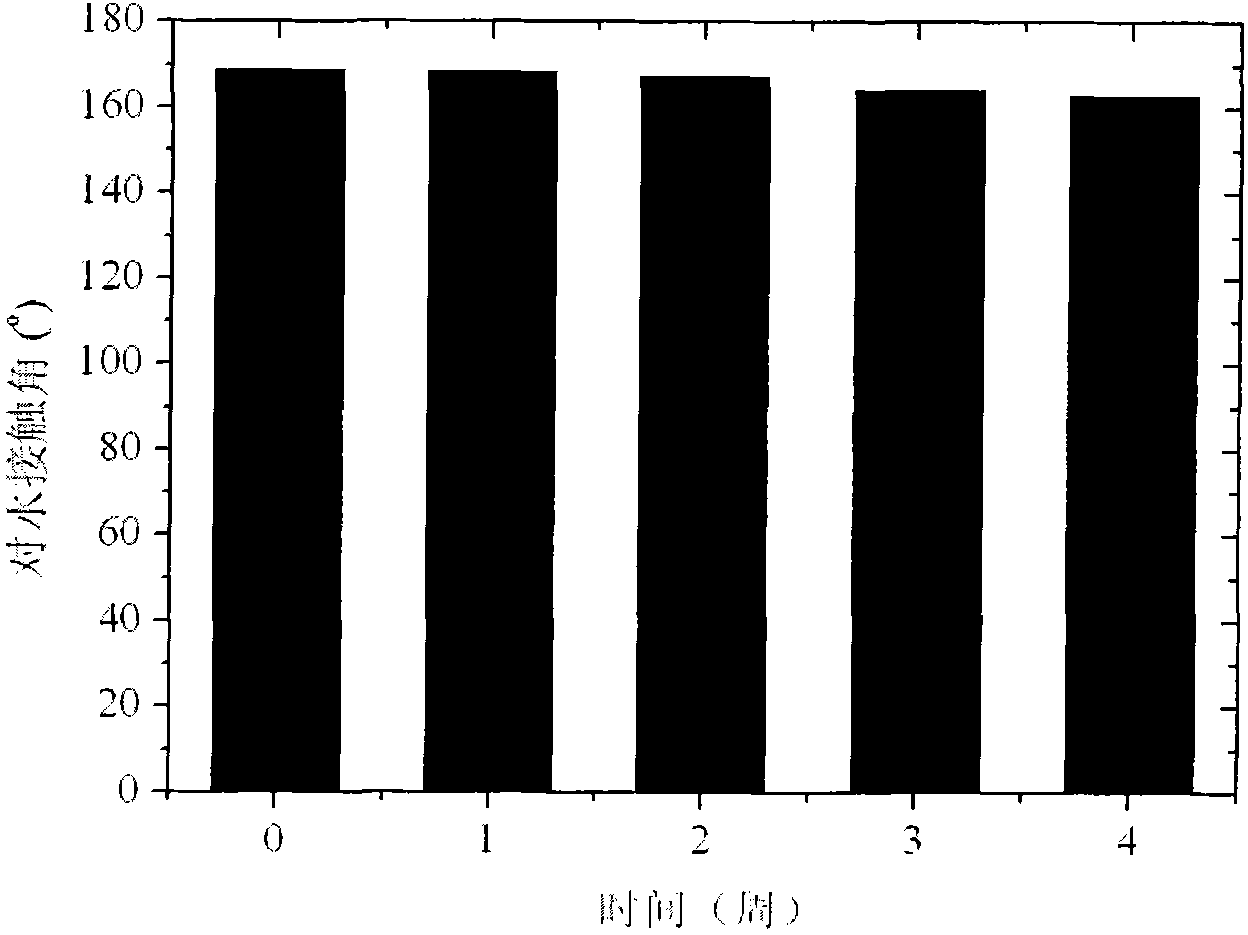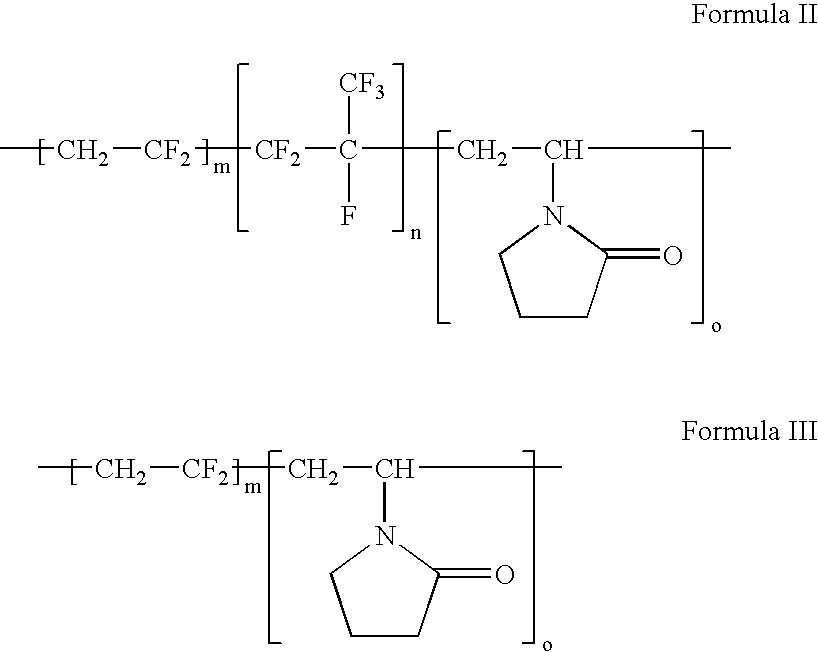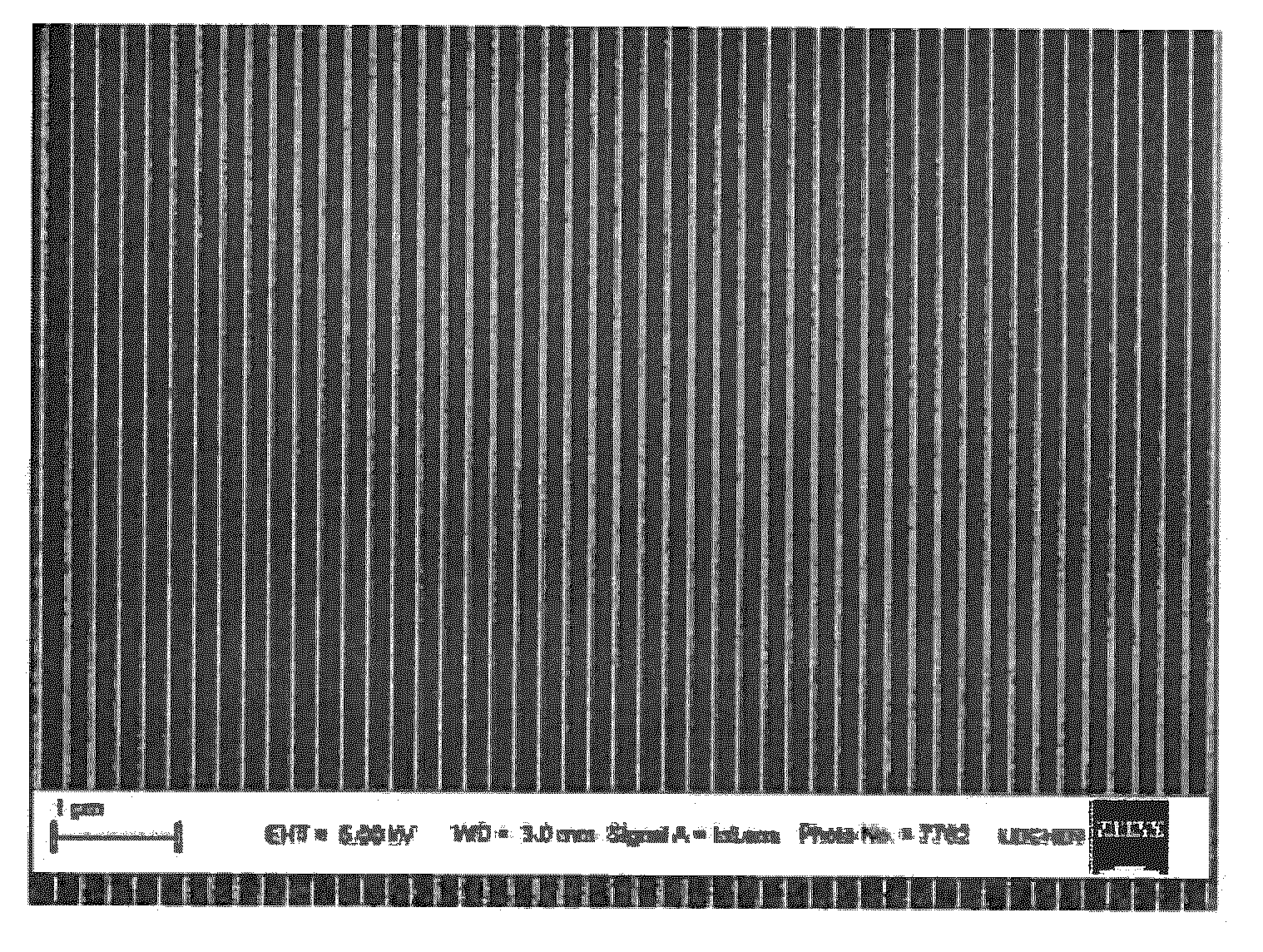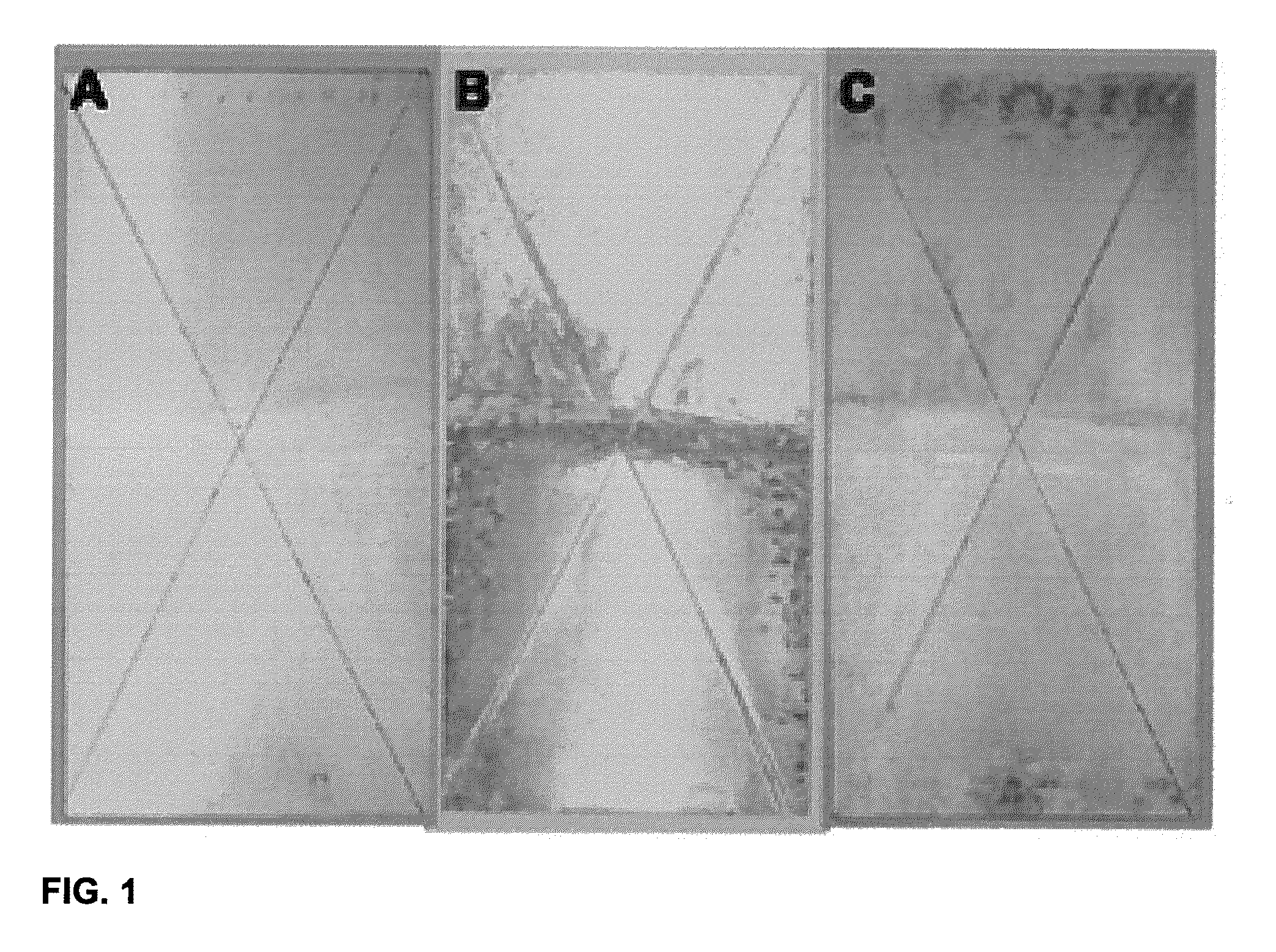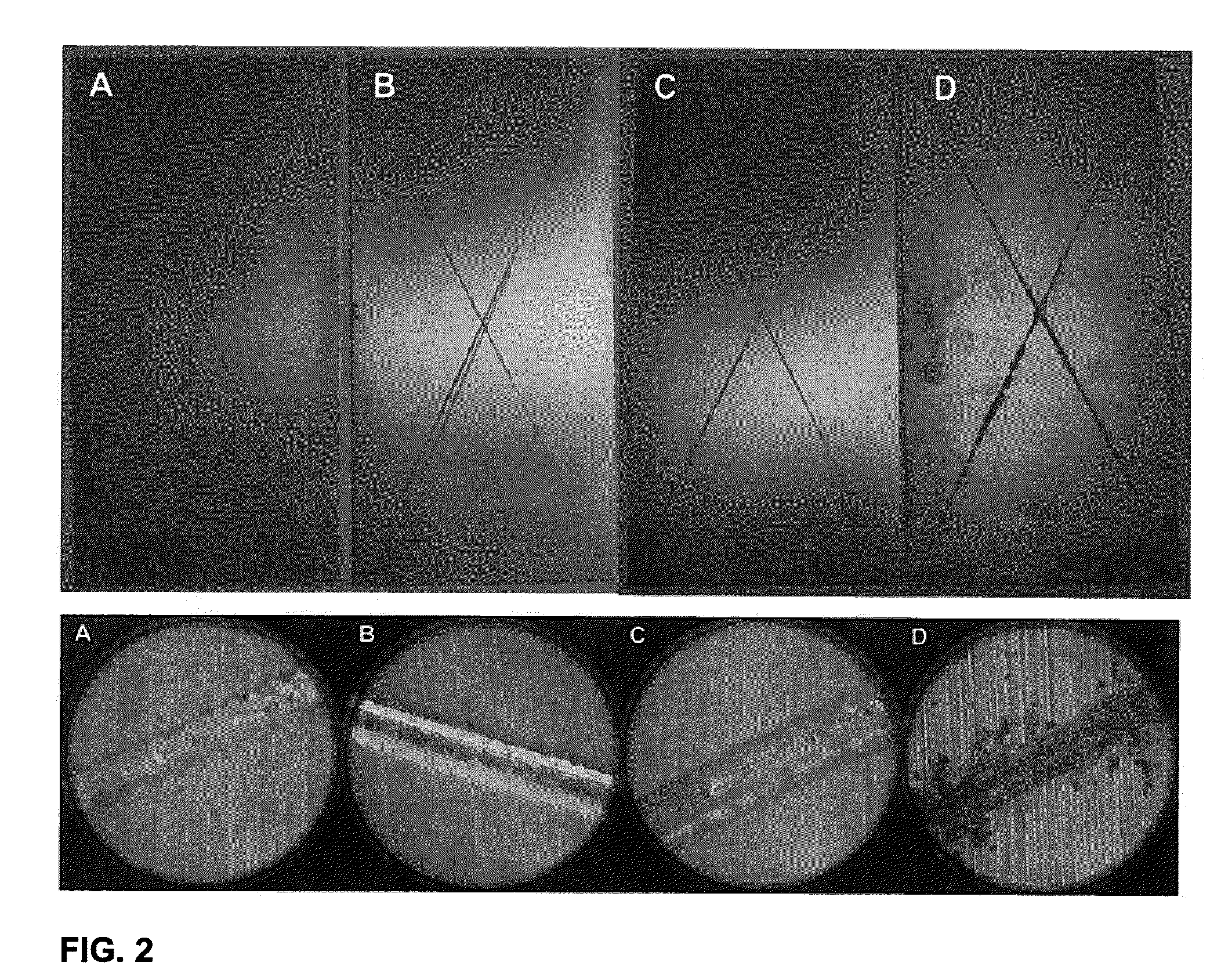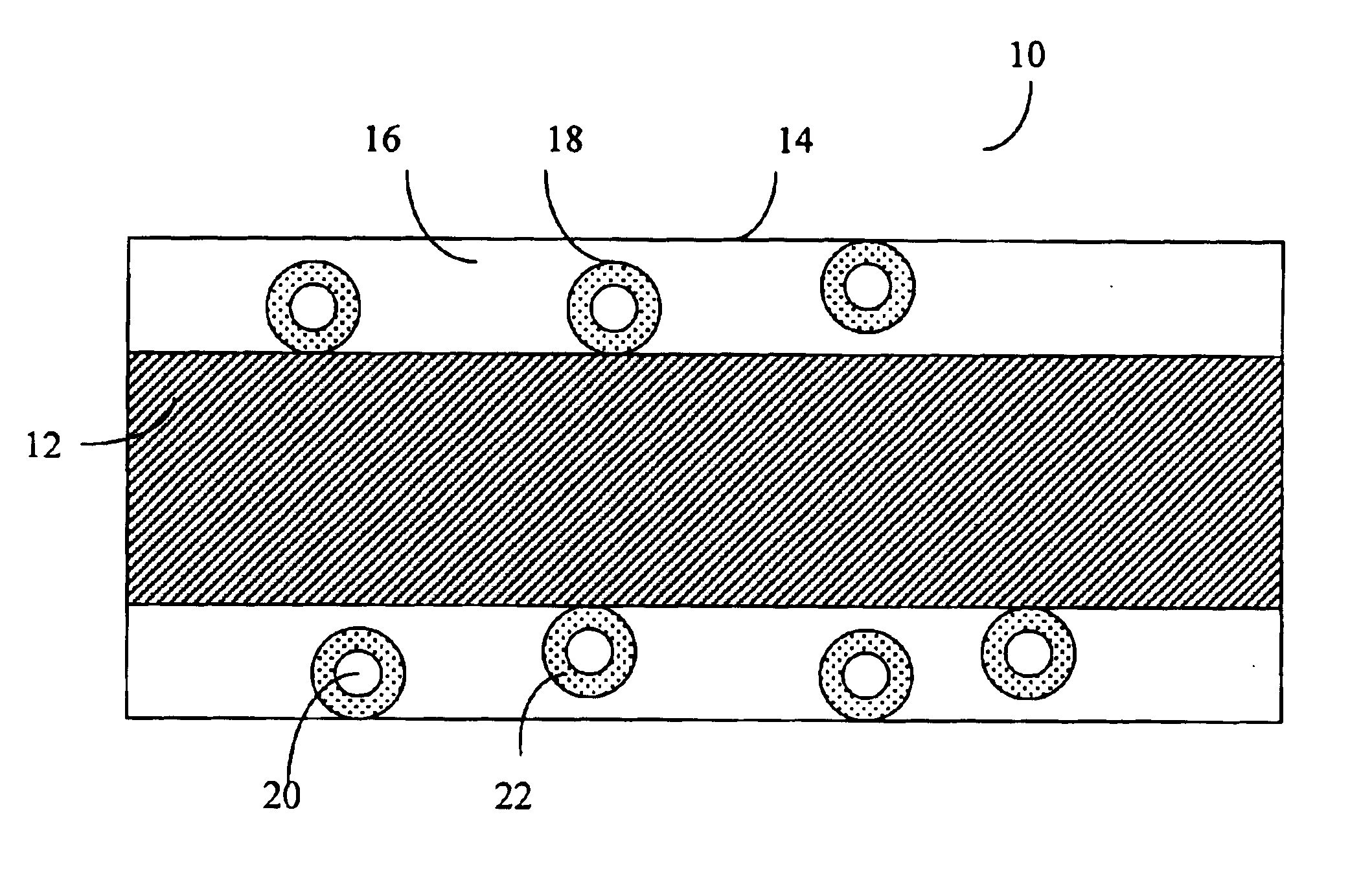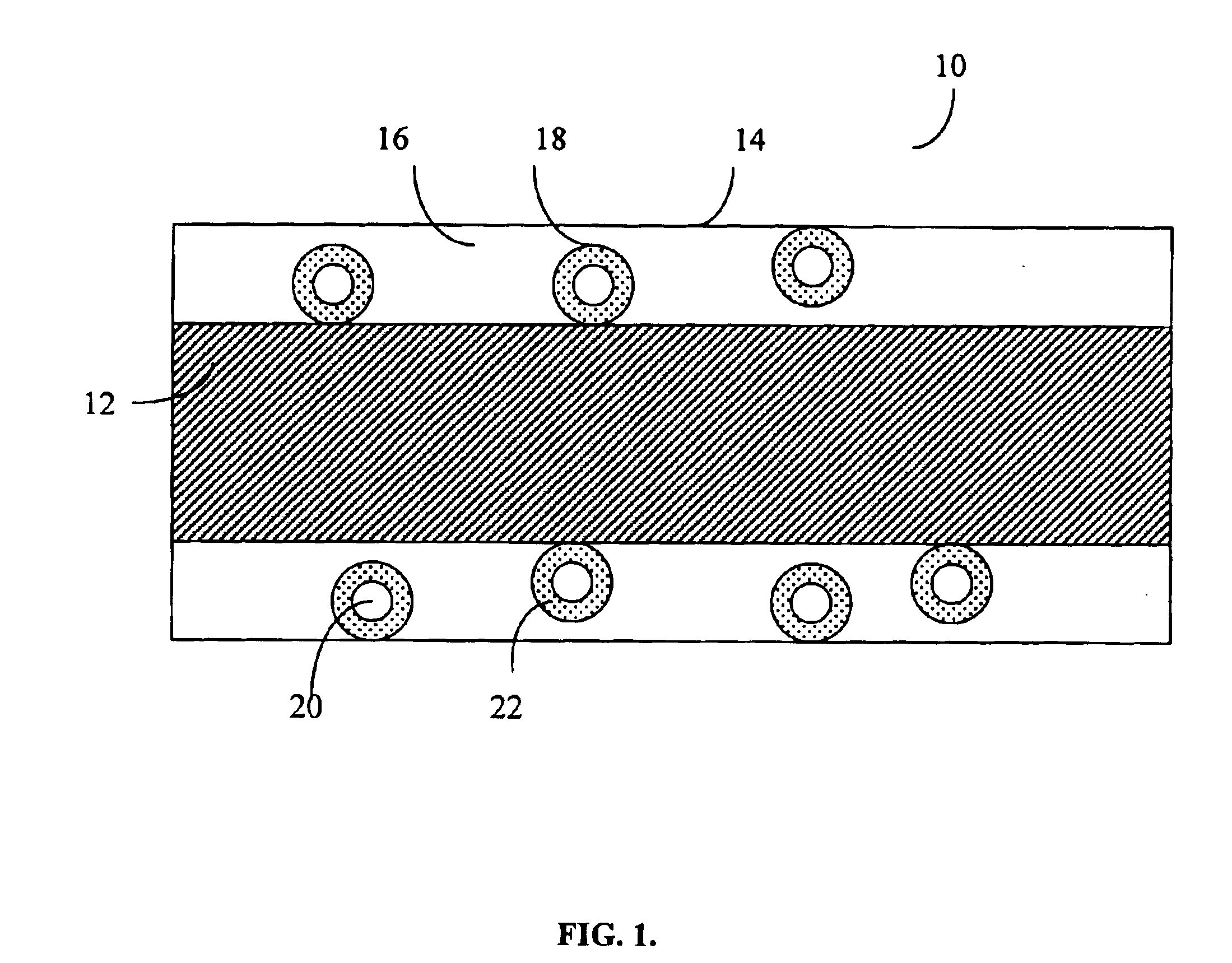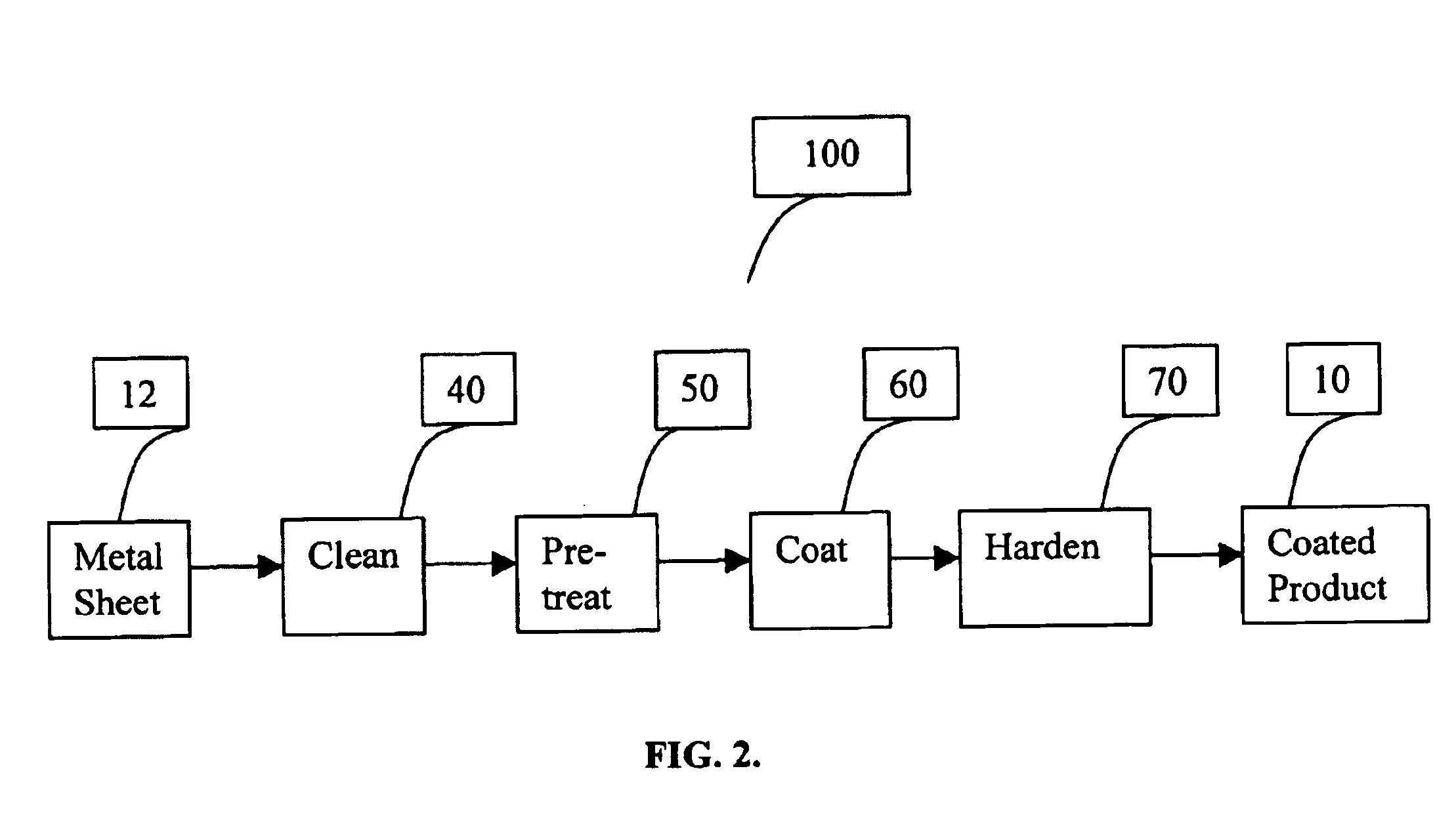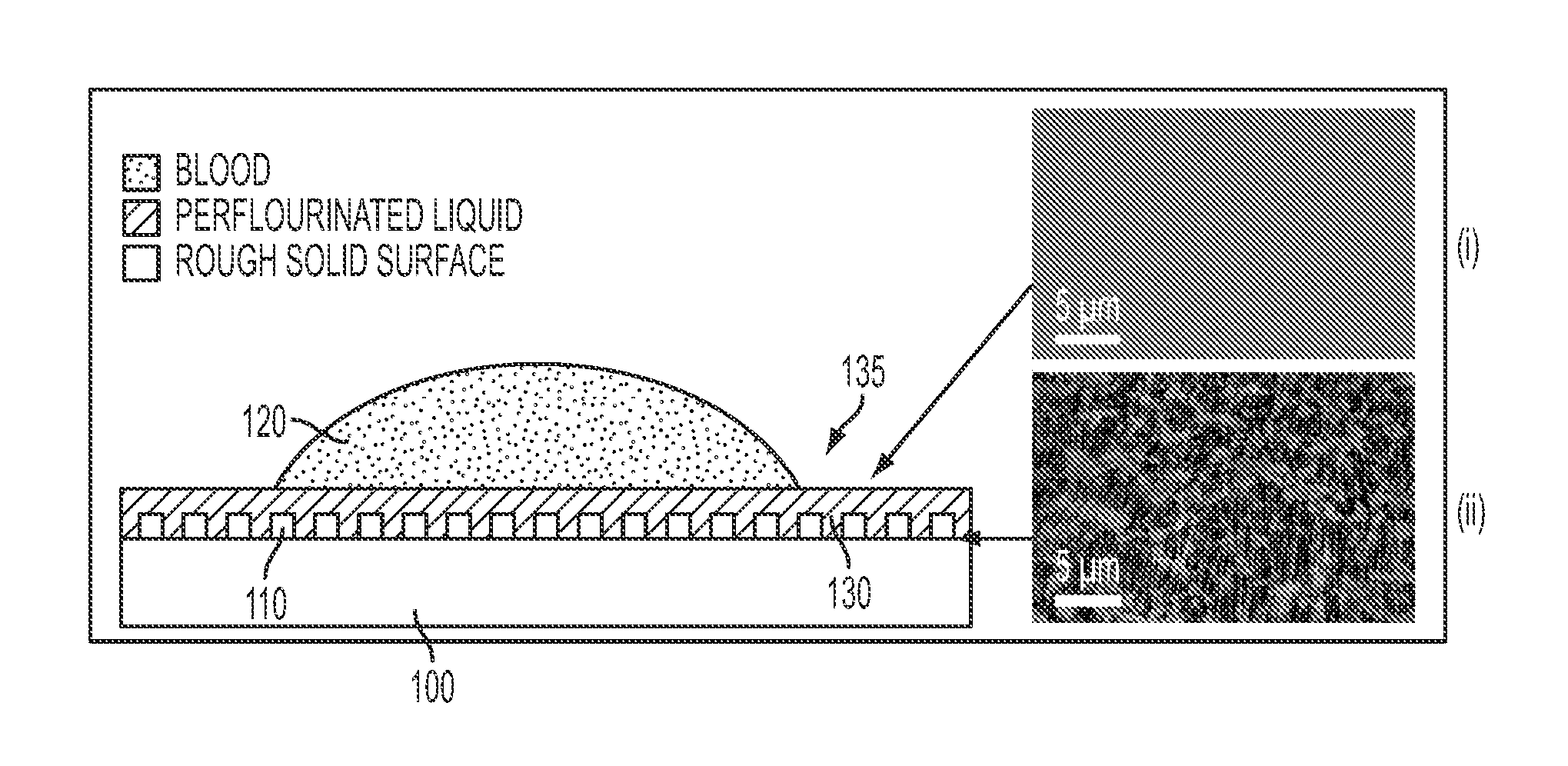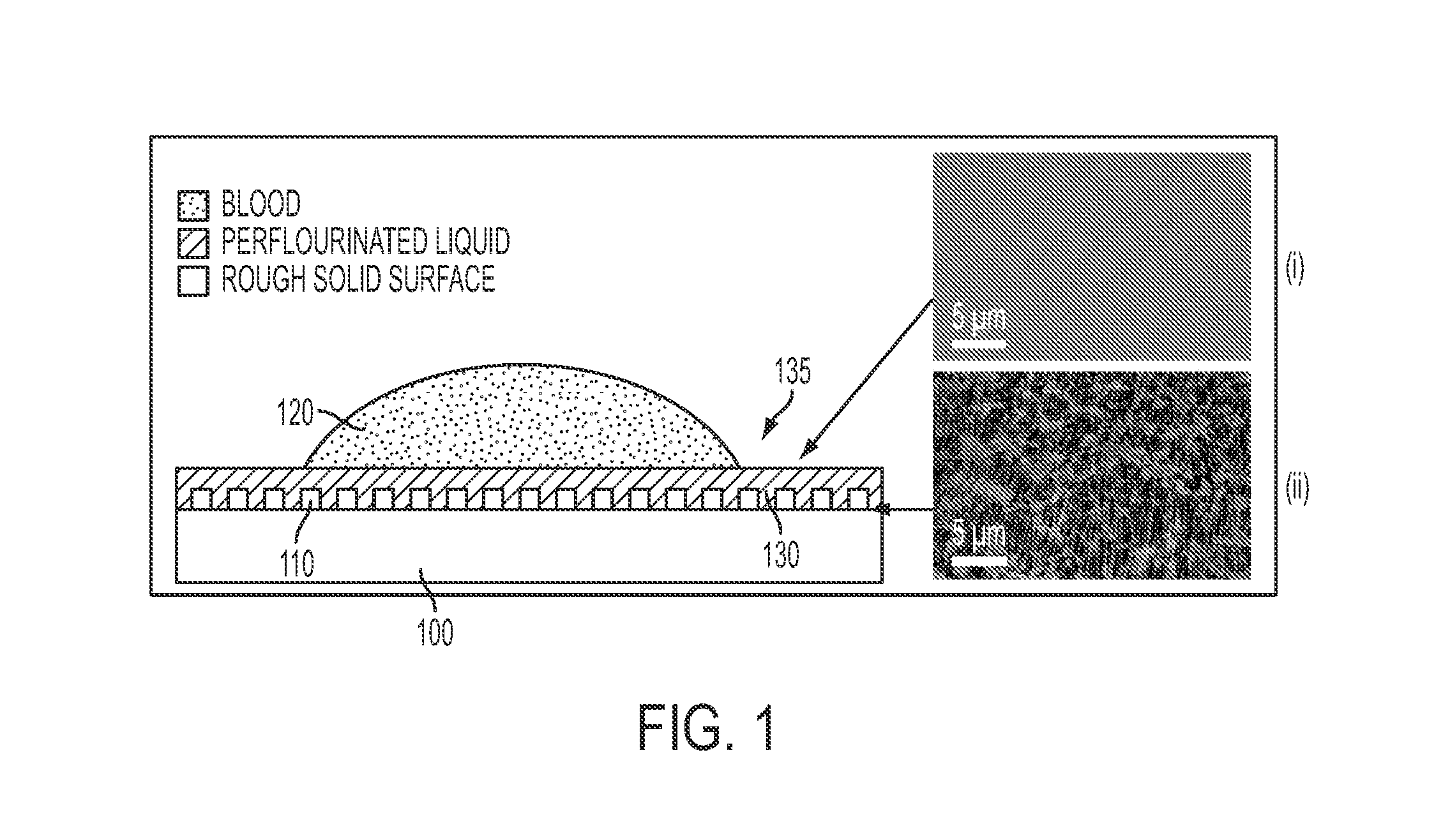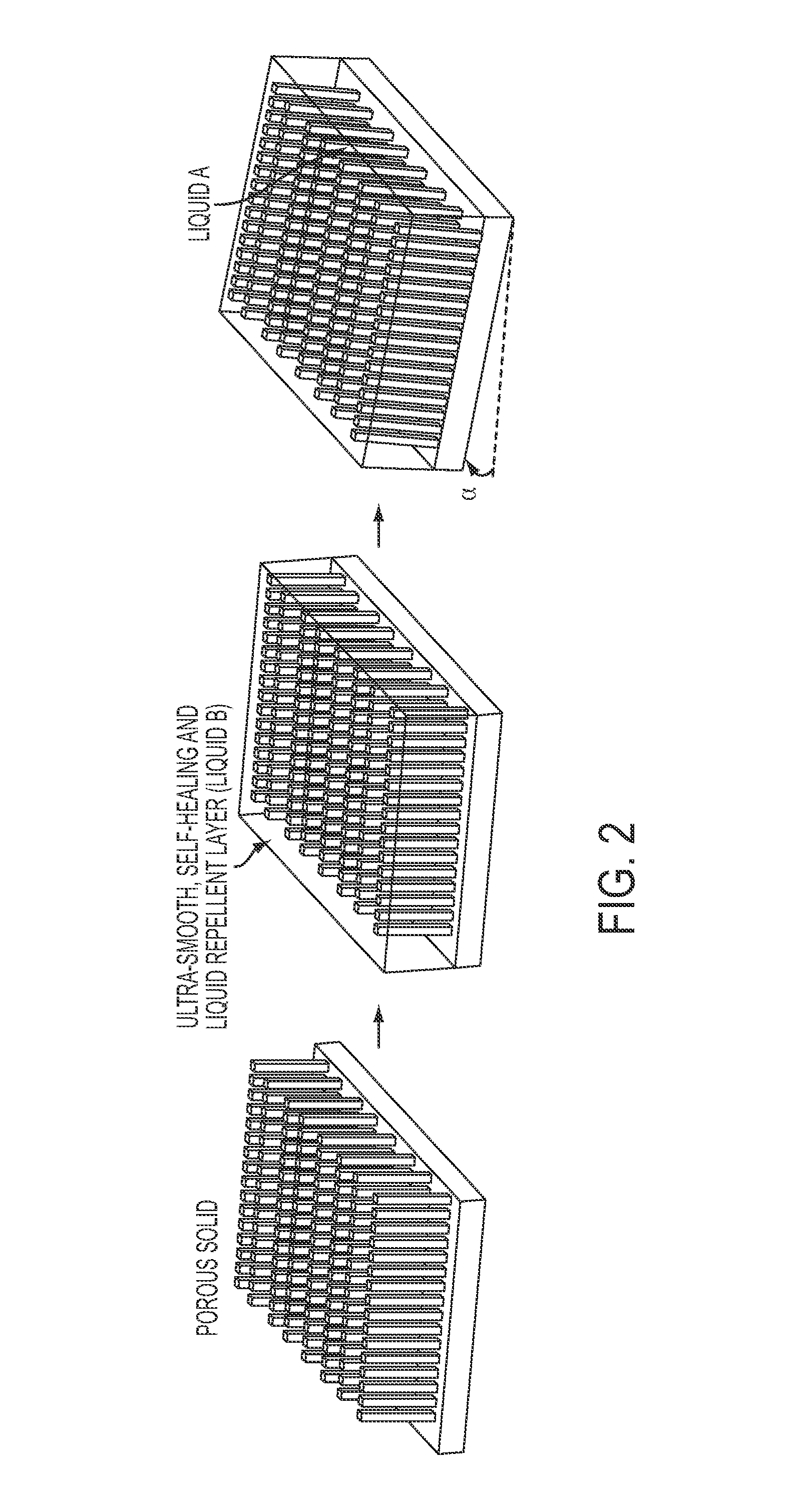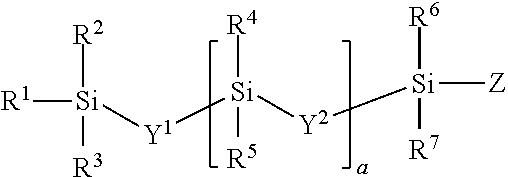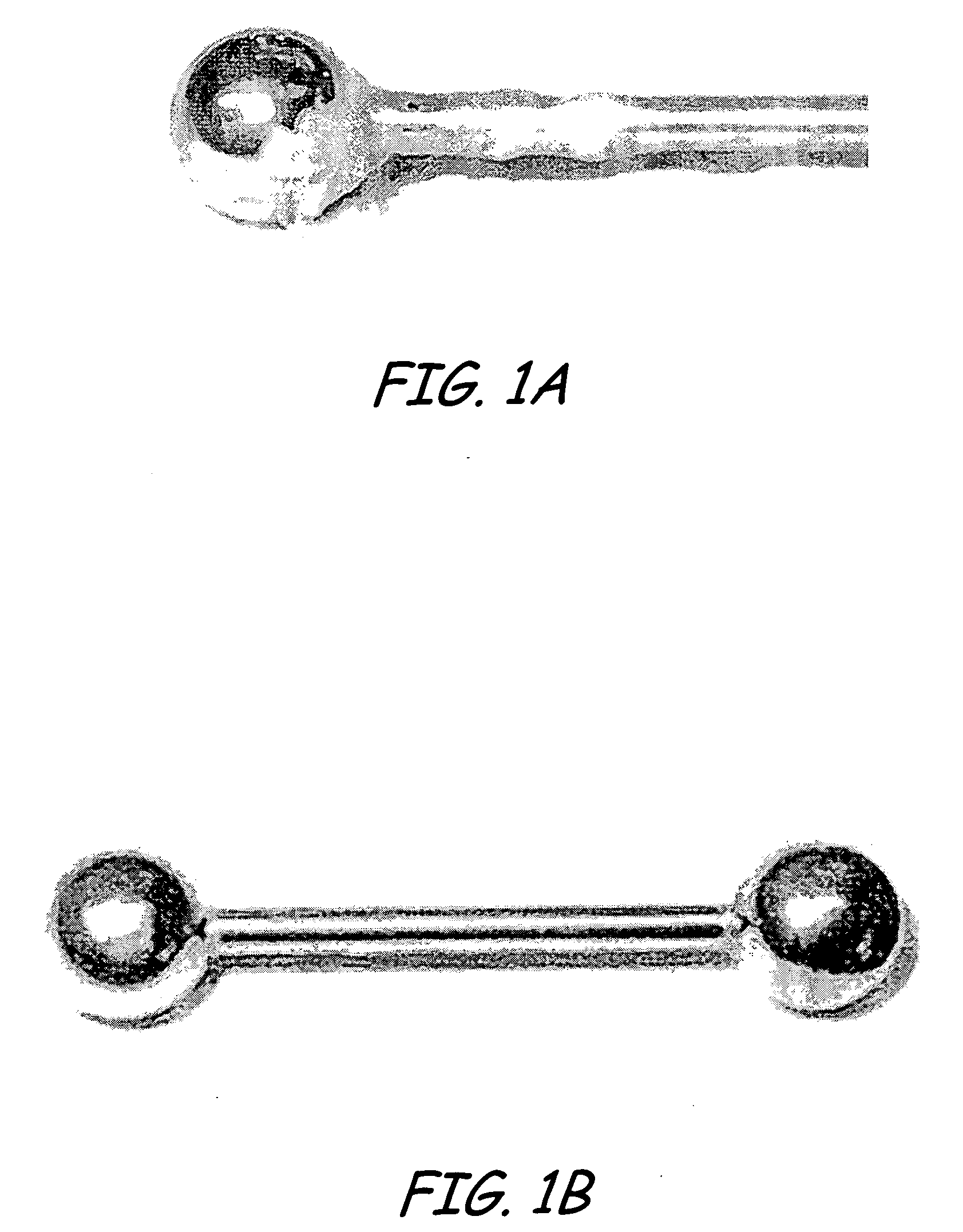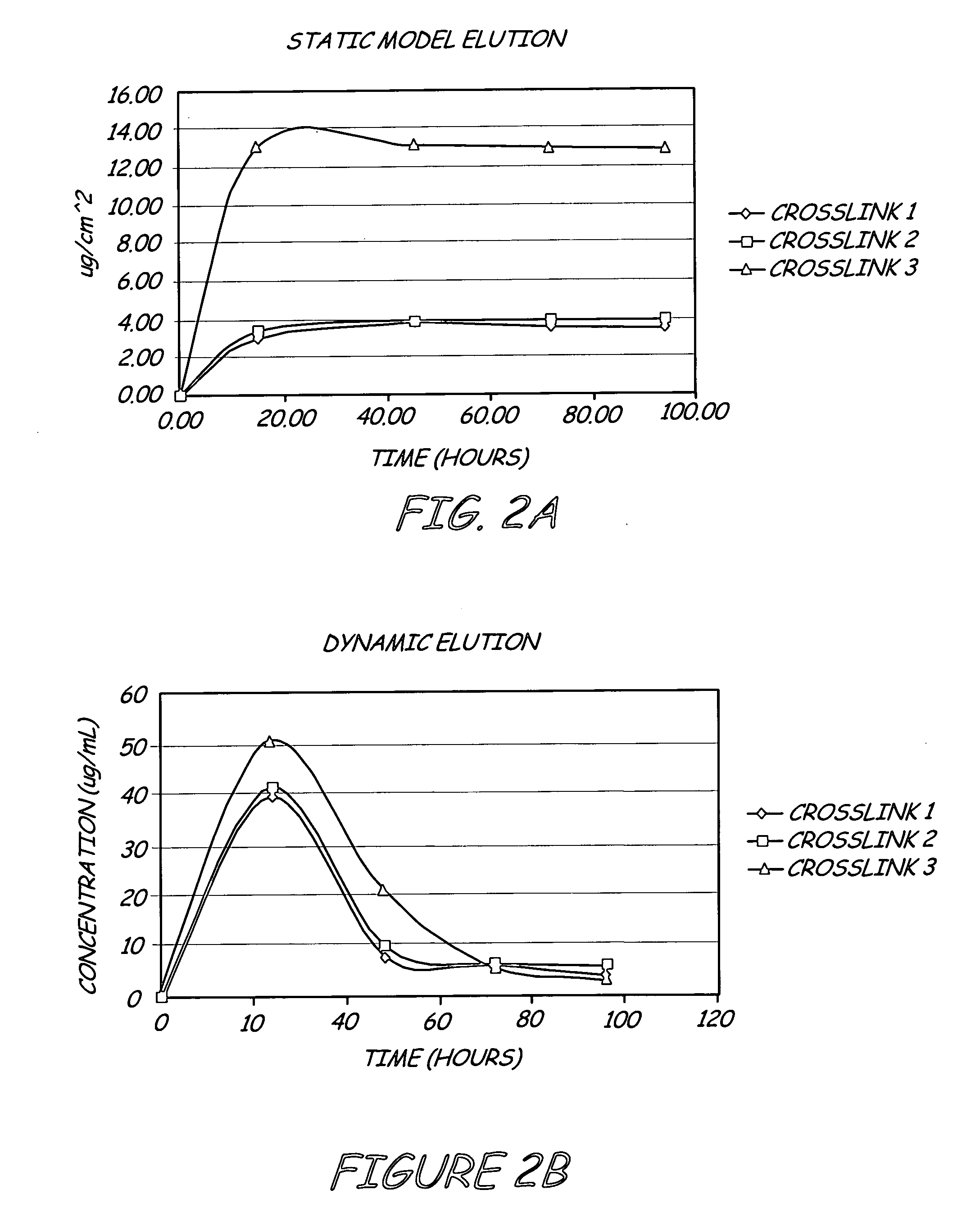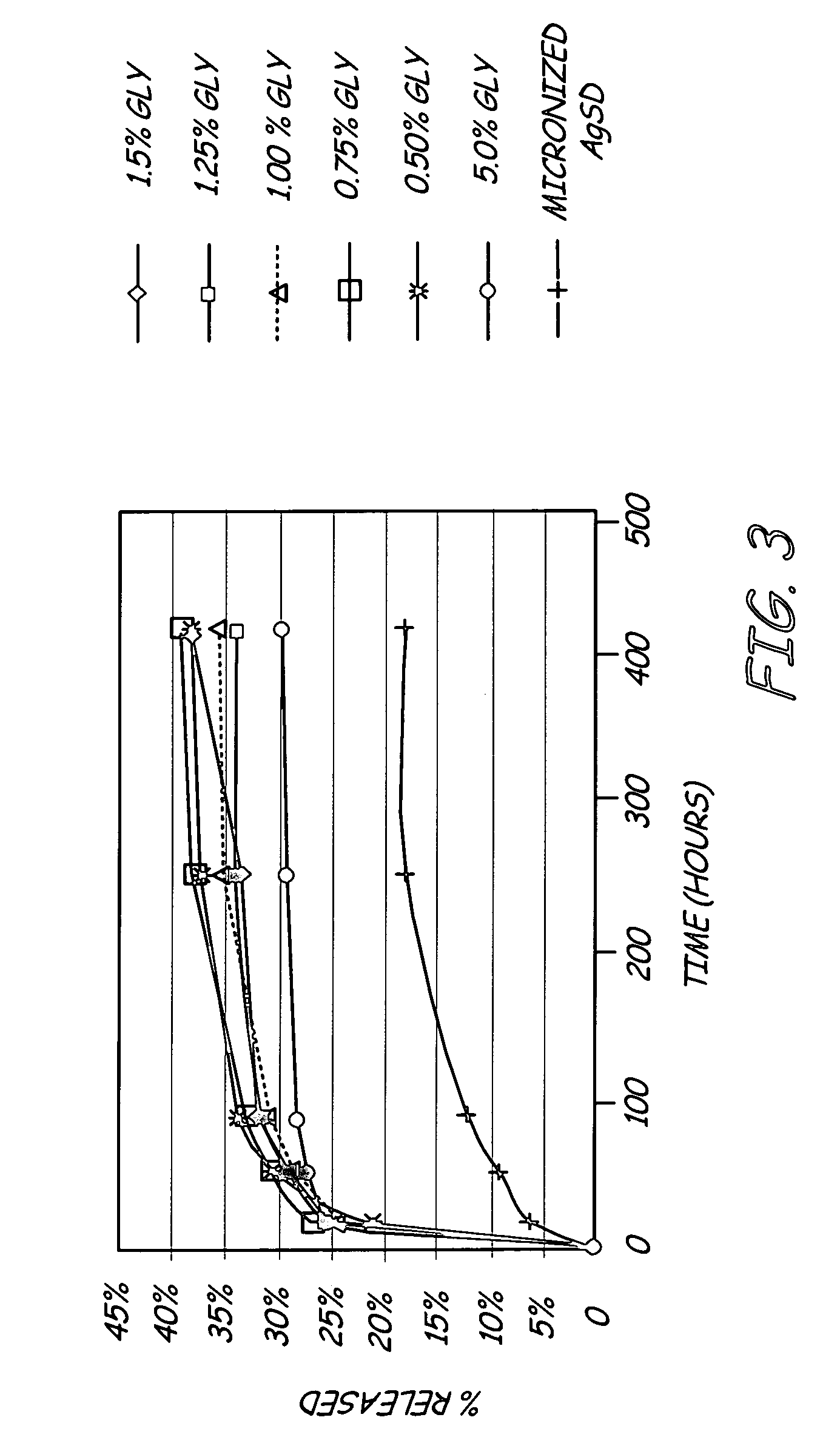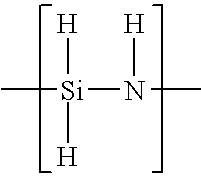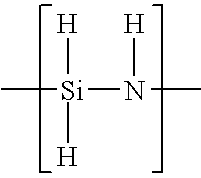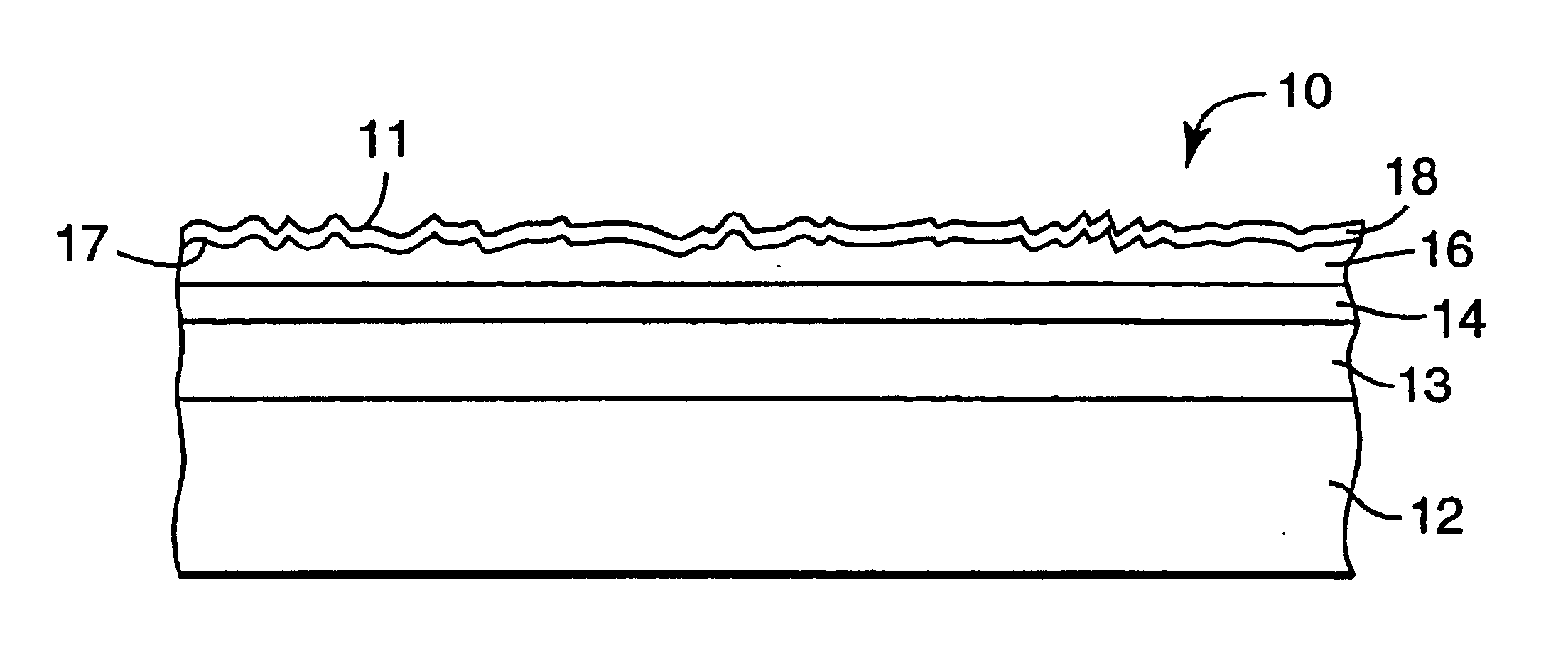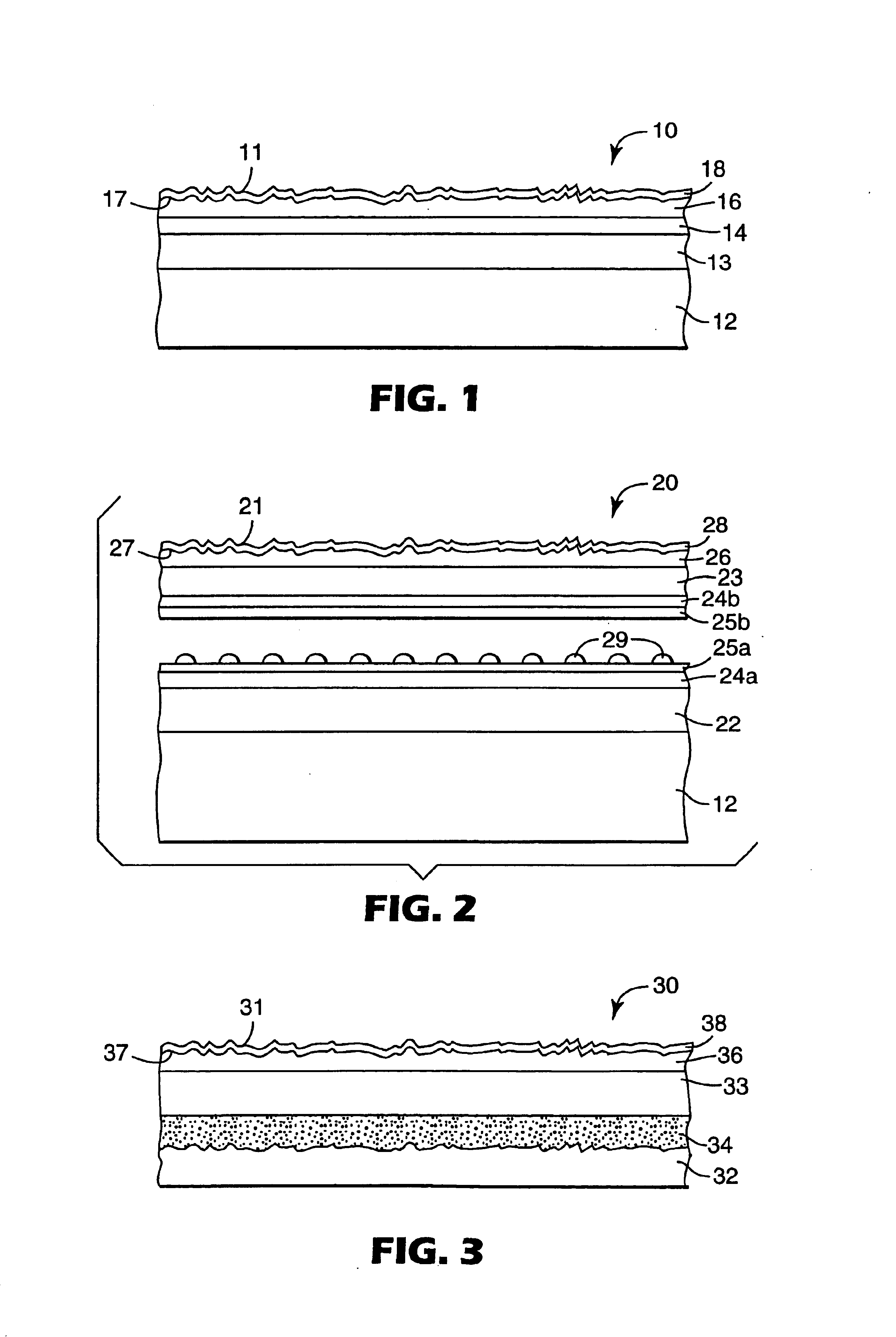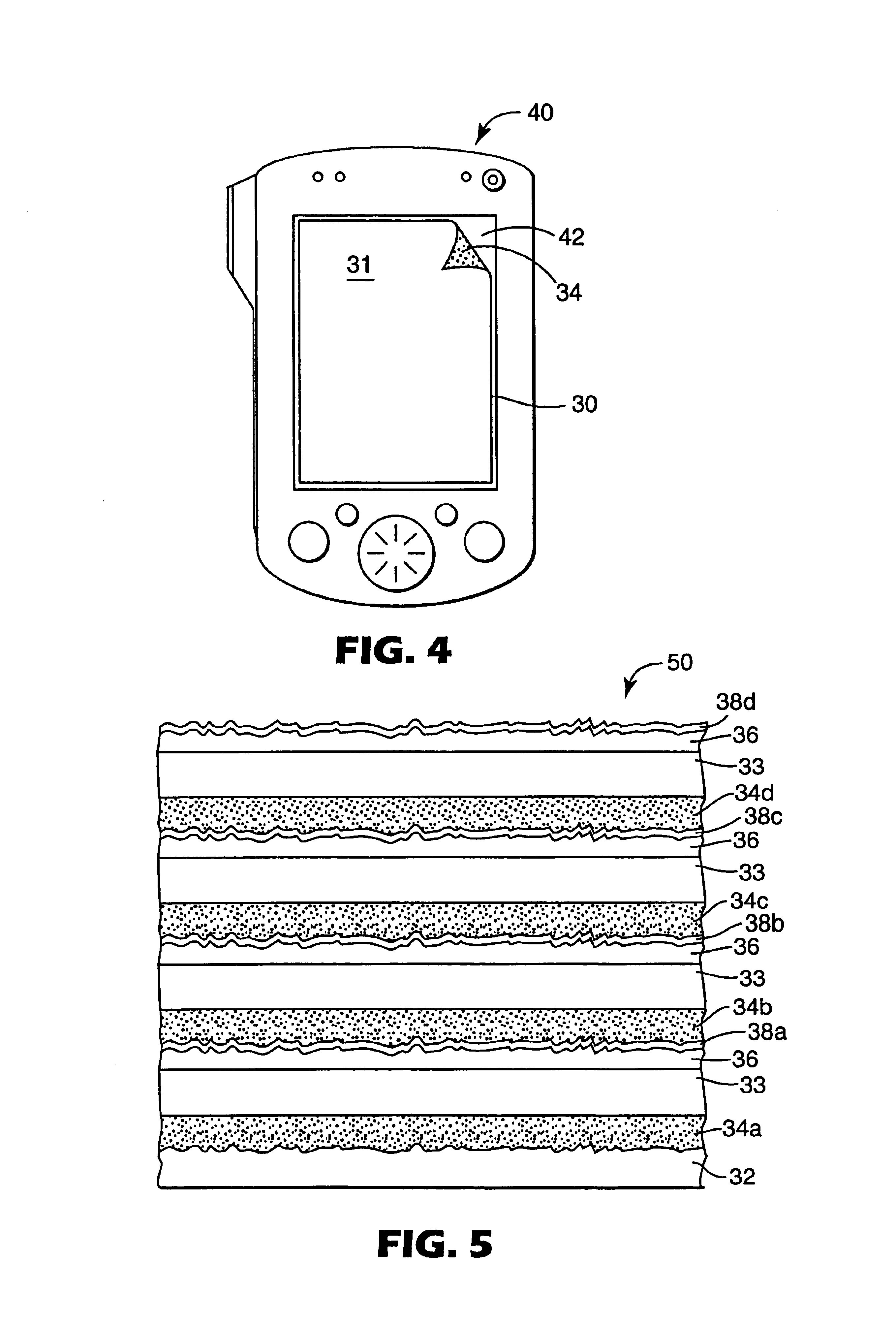Patents
Literature
18256results about "Antifouling/underwater paints" patented technology
Efficacy Topic
Property
Owner
Technical Advancement
Application Domain
Technology Topic
Technology Field Word
Patent Country/Region
Patent Type
Patent Status
Application Year
Inventor
Desiccant entrained polymer
The present invention includes a composition having a co-continuous interconnecting channel morphology. These co-continuous interconnecting channels are predominately occupied with a polymer and particles that control the percolation through the composition. The particles are composed of a material such as an absorbing agent, releasing agent and / or activation agent. The polymer composition may be used to form a desired shaped article such as plug type inserts and liners for closed containers, or it may be formed into a film, sheet, bead or pellet.
Owner:CSP TECH NORTH AMERICA
Bioactive coating composition and methods
InactiveUS6921811B2Promotes desired biologicalPromotes therapeutic effectSuture equipmentsOrganic active ingredientsArylBody fluid
The present invention provides a bioactive coating composition, method and devices for bodily fluid-contacting surfaces. The coating comprises a complex of Formula II: wherein R1 is an C1-18alkyl or C6-32aryl group, each R2 is independently selected from the group consisting of C1-18alkyl and C6-32aryl, R3 is N or O, n is a number from 1 to 10, and x in a number from 1 to about 30, directly bound to a heparin-activity molecule via covalent bonding, with one or more bioactive molecules bound to the heparin-activity molecule. The bioactive molecule may be an adhesive molecule such as fibronectin, a growth factor such as basic fibroblast growth factor, or any other bioactive molecule that binds, by any mechanism, to a heparin-activity molecule
Owner:BIOSURFACE ENG TECH
Nontoxic antifouling paint for oceanographic ship and facilities and method for preparing paint
ActiveCN101967316AInhibit Adhesive CorrosionTo achieve non-toxicRubber derivative coatingsAntifouling/underwater paintsNon toxicityBiofouling
The invention discloses a nontoxic antifouling paint for an oceanographic ship and facilities and a method for preparing the paint. The paint consists of the following components in percentage by weight: 15 to 55 percent of base material, 0.01 to 10 percent of antifouling agent, 10 to 30 percent of filler, 0.3 to 25 percent of pigment, 2 to 8 percent of auxiliary agent and 3 to 55 percent of solvent, wherein the antifouling agent is silver grains with average grain diameter of between 1 and 200nm. The paint does not contain toxic agents, such as dichloro-diphenyl-trichloroethane, organic tin,cuprous oxide and the like, at all while effectively suppressing corrosion of marine biological attachments, meets the related regulations of international maritime organization and future development trend of the antifouling paint, realizes non-toxicity and environmental friendliness of the marine antifouling technology, and can be widely applied to the facilities and the fields, such as ships, floating piers, marine oil platforms, submarine cables, cooling pipes of power plant near the sea, sea water culture net cage and the like.
Owner:CHINA LUCKY FILM CORP +1
Biodegradable resin compositions
InactiveUS6669771B2Increase resistanceHigh strengthCosmetic preparationsAntifouling/underwater paintsBiodegradable productDigestion
Owner:NAT INST OF ADVANCED IND SCI & TECH +2
Antimicrobial dendrimer nanocomposites and a method of treating wounds
An antimicrobial agent which is a composite composition of matter comprising a metal or metal-containing compound distributed on or in a dendritic polymer, and a method of treating wounds comprising applying to the wounds said antimicrobial agent. In a most preferred embodiment, said antimicrobial agent comprises discrete nanosized silver or silver containing compounds distributed on or in dendritic polymers.
Owner:UNITED STATE OF AMERICA AS REPRESENTED BY THE SEC OF THE ARMY
Porous plastic media with antiviral or antimicrobial properties and processes for making the same
This invention relates to novel porous materials that possess antiviral and / or antimicrobial properties. The invention encompasses a porous material having antiviral or antimicrobial properties which is comprised of a porous substrate and an antiviral or antimicrobial agent. The invention also encompasses a process for making porous materials that possess antiviral and / or antimicrobial properties and the products of the process.
Owner:POREX CORP
Gel and cushioning devices
InactiveUS20050101693A1Improve comfortAntifouling/underwater paintsPaints with biocidesCushioningEngineering
Owner:THE OHIO WILLOW WOOD CO INC
Raindrop fouling-resistant paint film, coating composition, film-forming method, and coated article
InactiveUS6013724ASatisfactory fouling resistanceHigh acid resistanceAntifouling/underwater paintsOther chemical processesCrack resistancePolymer chemistry
Owner:NIPPON PAINT CO LTD
Antimicrobial compositions containing colloids of oligodynamic metals
InactiveUS7179849B2Reduced settlingReduce agglomerationOrganic active ingredientsPretreated surfacesSolubilityCatheter
Owner:CR BARD INC
Surface topography for non-toxic bioadhesion control
A coated surface for resisting or enhancing bioadhesion includes at least one patterned polymer including coating layer having a plurality of features attached to or projected into a base surface. The features each have at least one microscale (<1 mm) dimension and have at least one neighboring feature having a substantially different geometry. The patterned coating layer preferably provides an average roughness factor (R) of from 4 to 50. The coating layer resists or enhances bioadhesion as compared to the base surface.
Owner:UNIV OF FLORIDA RES FOUNDATION INC
A kind of antibacterial composition and its application
InactiveCN102258064AExtended cleaning cycleTo achieve the effect of saving waterBiocideAntifouling/underwater paintsSodium PyrithioneNonwoven fabric
The invention relates to an antibacterial composition, comprising an organic antibacterial component containing at least one pyrithione salt, a pyrithione complex or an adduct thereof, an aqueous solution containing one or more metal ions or its The inorganic antibacterial component of the complex aqueous solution or its nanometer metal hydrosol or its nanometer metal oxide hydrosol and its composition, and the mass ratio of the organic antibacterial component to the inorganic antibacterial component is 1:100-50:1, It also includes other auxiliary agents, and its mass percentage in the antibacterial composition described in the patent is 0.001-20%. The antibacterial composition of the present invention can form a nanoparticle film on the surface of base materials such as natural fabrics, non-woven fabrics, clothing, bedding, toiletries, household items, medical care supplies, and filter screens, and realize its antibacterial properties through the nanoparticle film. Antibacterial, anti-mite, deodorizing and self-cleaning functions. The antibacterial composition of the invention is safe to use and can be used in medical treatment and life to protect people's health.
Owner:赵正坤
Super-low fouling sulfobetaine and carboxybetaine materials and related methods
Owner:UNIV OF WASHINGTON
Antimicrobial and antistatic polymers and methods of using such polymers on various substrates
The present invention relates to a substrate having antimicrobial and / or antistatic properties. Such properties are imparted by applying a coating or film formed from a cationically-charged polymer composition. The polymer composition includes a noncationic ethylenically unsaturated monomer, an ethylenically unsaturated monomer capable of providing a cationic charge to the polymer composition, and a steric stabilization component incorporated into the cationically-charged polymer composition. The present invention also relates to a polymeric material comprising a base polymer blended with the above cationically-charged polymer composition.
Owner:MALLARD CREEK POLYMERS
Antimicrobial coating compositions
ActiveUS20100137472A1Reduce complicationsSuitable for useAntifouling/underwater paintsPretreated surfacesAlkaneCetrimide
Antimicrobial compositions and methods are disclosed. The antimicrobial compositions are particularly useful in providing antimicrobial capability to a wide-range of medical devices. In one aspect, the invention relates to a mild solvent coating using acrylate-type mild solution coating. These compositions include rheological modifiers as necessary. The compositions also include antimicrobial agents, which may be selected from a wide array of agents. Representative antimicrobial agents include cetyl pyridium chloride, cetrimide, alexidine, chlorexidine diacetate, benzalkonium chloride, and o-phthalaldehyde. Additionally, the compositions comprise one or more suitable mild solvents, such as a low molecular weight alcohol, alkane, ketone, and combinations thereof.
Owner:BECTON DICKINSON & CO
Nanostructured superhydrophobic, superoleophobic and/or superomniphobic coatings, methods for fabrication, and applications thereof
Systems, techniques and applications for nanoscale coating structures and materials that are superhydrophobic with a water contact angle greater than about 140° or 160° and / or superoleophobic with an oil contact angle greater than about 140° or 160°. The nanostructured coatings can include Si or metallic, ceramic or polymeric nanowires that may have a re-entrant or mushroom-like tip geometry. The nanowired coatings can be used in various self-cleaning applications ranging from glass windows for high-rise buildings and non-wash automobiles to pipeline inner surface coatings and surface coatings for biomedical implants.
Owner:RGT UNIV OF CALIFORNIA
Composition, method of making, and treatment of wood with an injectable wood preservative slurry having biocidal particles
A method of preserving wood includes injecting into the wood an effective amount of a aqueous wood-injectable biocidal slurry, said a wood-injectable biocidal slurry containing dispersants and sub-micron biocidal particles selected from at least one of the following classes: 1) a plurality of particles containing at least 25% by weight of a solid phase of sparingly soluble salts selected from copper salts, nickel salts, tin salts, and / or zinc salts; 2) a plurality of particles containing at least 25% by weight of a solid phase of sparingly soluble metal hydroxides selected from copper hydroxide, nickel hydroxide, tin hydroxide, and / or zinc hydroxide; 3) a plurality of particles containing at least 25% by weight of a solid phase comprising a substantially-insoluble organic biocide selected from triazoles, chlorothalonil, iodo-propynyl butyl carbamate, copper-8-quinolate, fipronil, imidacloprid, bifenthrin, carbaryl, strobulurins, and indoxacarb; 4) a plurality of particles containing on the outer surface thereof a substantially-insoluble organic biocide; 5) a plurality of particles containing a solid phase of a biocidal, partially or fully glassified composition comprising at least one of Zn, B, Cu, and P. The particles may advantageously contain metallic copper, a leachability barrier, pigments, dyes, or other adjuvants disposed on the outer surface thereof.
Owner:OSMOSE
Building materials with bioresistant properties
InactiveUS20050126430A1Effective biocide treatmentAffecting performanceFireproof paintsAntifouling/underwater paintsFiberBiological resistance
A building article incorporating a biocidal agent, such as copper oxine, that inhibits the growth of mold, fungi, algae, mildew, bacteria, lichen, and other undesirable biological growth is provided. The biocidal agent can be a biocide, fungicide, germicide, insecticide, mildewcide, or the like. The biocidal agent can be interspersed throughout the matrix of the article; applied as a surface treatment to the article; or applied as a treatment to the fibers reinforcing the article. The building article can include tile backer boards, decks, soffits, trims, decking, fencing, roofing, cladding, sheathing, and other products. The building article can also include a variety of different composite materials such as cement, gypsum, wood, and wood / polymer composites.
Owner:JAMES HARDIE TECH LTD
Mold-resistant gypsum panel and method of making same
InactiveUS6893752B2Reduce the growth of moldImprove anti-mold performancePretreated surfacesRecord information storageSodium PyrithioneEvaporation
A mold-resistant gypsum panel includes a core of an interlocking matrix of calcium sulfate dihydrate crystals, a facing material on at least one side of the panel and a salt of pyrithione dispersed through both the core and the facing materials. A method of making a mold-resistant gypsum product is also provided. A slurry of calcined gypsum, water and a water-soluble pyrithione salt is formed, then deposited on a sheet of facing material. The slurry on the facing material is shaped into a panel and maintained under conditions sufficient for the calcined gypsum to react with the water to form a core comprising an interlocking matrix of set gypsum crystals. Heating of the panel causes evaporation of the water that did not react with the calcined gypsum.
Owner:UNITED STATES GYPSUM CO
High-durability super-hydrophobic self-cleaning coating material and preparation method thereof
InactiveCN101962514AHas the following advantages: (1) cleanlinessHas the following advantages: (1) has the functionAntifouling/underwater paintsPaints with biocidesDouble bondDimethyl siloxane
The invention belongs to the technical field of a new chemical material, and in particular relates to a high-durability super-hydrophobic self-cleaning coating material and a preparation method thereof. The coating material of the invention is prepared by curing and drying nanoparticles with photo-catalytic activity, a low-surface-free-energy polymer and a cross-linking agent at the room temperature, wherein the low-surface-free-energy polymer consists of one or more of polysiloxane fluoride, dimethyl silicone polymer and polyphenylene methyl siloxane, which contain active groups, such as hydroxyl alkoxy group, carbon-carbon double bond, silanol group, siloxy group, and the like; the cross-linking agent is hydrogen-containing silicone oil or aminosilane; and the mass content of the photo-catalytic nanoparticles in the coating ranges from 10 to 60 percent. The coating is formed into a micro-nanostructure by nanoparticle self-organization; a super-hydrophobic self-cleaning coating with lotus effect is prepared from the coating and a cross-linked filming matrix with low surface energy; the persistence of a lotus-shaped super-hydrophobic characteristic of the coating is realized by using the photo-catalytic decomposition characteristic of an organic pollutant for the nanoparticles; and thus the material is suitable for large-area construction and has high weathering resistance andprominent self-cleaning characteristic.
Owner:FUDAN UNIV
Polymer compositions containing colloids of silver salts
The present invention relates to antimicrobial compositions, methods for the production of these compositions, and use of these compositions with medical devices, such as catheters, and implants. The compositions of the present invention advantageously provide varying release kinetics for the active ions in the compositions due to the different water solubilities of the ions, allowing antimicrobial release profiles to be tailored for a given application and providing for sustained antimicrobial activity over time. More particularly, the invention relates to polymer compositions containing colloids comprised of salts of one or more oligodynamic metal, such as silver. The process of the invention includes mixing a solution of one or more oligodynamic metal salts with a polymer solution or dispersion and precipitating a colloid of the salts by addition of other salts to the solution which react with some or all of the first metal salts. The compositions can be incorporated into articles or can be employed as a coating on articles such as medical devices.
Owner:CR BARD INC
Antimicrobial brush
InactiveUS6108847ACost-effectiveNon-toxic, durableBiocideAntifouling/underwater paintsBristleChemical compound
A brush having antimicrobial characteristics that inhibit bacterial growth. The antimicrobial agents, compounds or chemicals are embedded in either the body or bristles or both of the brush. Further, the present invention is a method of manufacturing a brush having antimicrobial characteristics that inhibit bacterial growth. An antimicrobial additive is incorporated in resin concentrate form into the amorphous zones of the molecular structure of the polymer from which brush handles are injection molded, thereby incorporating the antimicrobial agent into the brush handle. The antimicrobial additive in the body of the brush, incorporated in the manner above, results in substantive controlled migration from the body to the bristles, until a point of equilibrium is reached. The invention is suitable for any brush in which bristles are embedded in plastic, including toothbrushes, hair brushes, scrub brushes, toilet bowl brushes, cosmetic brushes, lip-color brushes, etc.
Owner:MICROBAN PROD CO INC
Polymers with anti-microbial properties
The invention relates to polymers with antimicrobial properties, consisting of: a) 99-40 wt % non functional vinylically polymerizable monomers and b) 1-60 wt % functional vinylically polymerizable monomers of general formula (I) wherein V=vinyl, (meth)acroyl, allyl or styryl, A=a possibly available linking unit, which can be alkyl, aryl, arylalkyl or hydroxy alkyl, which can also be interrupted by hetero atoms, e.g. by hetero atoms in urethane, carbonate, ester, amide or ether groups, wherein y=0 or is 1, Hsp=a hydrophilic spacer of general formula (i) -(O-CH2-CH2)r- and / or (ii) -(O-CH2-CH(CH3))s with r=0-40, s=0-40 and r+s=2-40, also m=1.2 or 3 and R1=CH3, ethyl or benzyl, R2=an alkyl radical with 8-20 C-atoms, wherein t=1, 2 or 3 and X-=Cl-, Br-, I- or alkyl sulphate.
Owner:EVONIK ROEHM GMBH
Polymers of fluorinated monomers and hydrophilic monomers
ActiveUS20060269586A1Provide flexibilityProvide strengthStentsAntifouling/underwater paintsHydrophilic monomerPolymer science
A polymer blend that contains a polymer of fluorinated monomers and another biocompatible polymer. The polymer blend can form a coating on a medical device. The medical device can be used for treat, prevent or ameliorate a medical condition.
Owner:ABBOTT CARDIOVASCULAR
Silsesquioxane derived hard, hydrophobic and thermally stable thin films and coatings for tailorable protective and multi-structured surfaces and interfaces
ActiveUS20110062619A1Attractive balanceImprove scratch resistanceNanoinformaticsPhotomechanical apparatusDiluentRare earth
A method of forming a coating comprising the steps of dissolving an silsesquioxane (e.g., one that is primarily a cage compound with 8, 10, 12, 14 or related complete cages or with partially condensed cages containing primarily Si(O)4 units in the cage) in a solvent to form an silsesquioxane solution; introducing (e.g., dissolving) an additive in the solution (e.g., the additive being selected from a rare earth compound, an acid, an organic moiety, a precious metal or compound thereof, a transition metal compound, or any combination thereof, or any of their ionic constituents); and optionally mixing a diluent with the solution to form a coating that is applied to a substrate, wherein the resulting coating forms crosslinks between resulting pendant Si(OH)x groups and a substrate surface. The present invention also contemplates coatings and coated articles consistent with the present teachings.
Owner:LAINE RICHARD M
Antimicrobial coated metal sheet
InactiveUS6929705B2Improve fingerprint resistanceEasy to controlBiocideAntifouling/underwater paintsAdditive ingredientMetal sheet
The present invention relates to metallic sheets having an improved antimicrobial property and also related to a method of manufacturing such sheets. More particularly, it relates to the continuous coating on metallic sheets with a resin composition containing antimicrobial additives. The surface of the metallic article is afforded antimicrobial properties by coating a liquid dispersion or solution of fine particles made of an antimicrobial ingredient on the surface of the metallic sheet dispersed in a uniform layer and cured or dried to affix to the metallic surface. The inorganic antibacterial particles are metal component-supporting oxides and zeolite powders. The inorganic antibacterial core particles have at least a primary surface coating of at least one metal or metal compound having antimicrobial properties. Roll coaters apply the coating. The metallic article generally includes sheet articles made of metals, for example, metallic sheets made of stainless steel, conventional steel sheets and aluminum sheets or plate.
Owner:CLEVELAND CLIFFS STEEL PROPERTIES INC
Slippery liquid-infused porous surfaces and biological applications thereof
ActiveUS20140187666A1Inhibit inflammationPrevents wound healingAntifouling/underwater paintsSurgical adhesivesSelf-healingHigh density
A self-healing, scratch resistant slippery surface that is manufactured by wicking a chemically-inert, high-density liquid coating over a roughened solid surface featuring micro and nanoscale topographies is described. Such a slippery surface shows anti-wetting properties, as well as exhibits significant reduction of adhesion of a broad range of biological materials, including particles in suspension or solution. Specifically, the slippery surfaces can be applied to medical devices and equipment to effectively repel biological materials such as blood, and prevent, reduce, or delay coagulation and surface-mediated clot formation. Moreover, the slippery surfaces can be used to prevent fouling by microorganisms such as bacteria.
Owner:PRESIDENT & FELLOWS OF HARVARD COLLEGE
Siloxane monomers containing hydrolysis resistance carbosiloxane linkage, process for their preparation and thin films containing the same for contact lens application
ActiveUS20120245249A1Better oxygen permeableSilicon organic compoundsAntifouling/underwater paintsMeth-Hydrolysis
There is provided new mono-(meth)acrylate functionalized silicone monomers containing carbosiloxane linkage for improved hydrolysis resistance, useful in making water absorbing silicone-hydrogel films for contact lens applications. This invention also provides homo-polymers and copolymers made from the mono-(meth)acrylate functionalized hydrophilic silicone monomers described herein. Also provided is a process for producing the monomers and polymers described herein and contact lenses produced from the same.
Owner:MOMENTIVE PERFORMANCE MATERIALS INC
Antimicrobial coating for inhibition of bacterial adhesion and biofilm formation
InactiveUS20080063693A1Increased coating antimicrobial efficacyPrevent bacterial adhesionBiocideAntifouling/underwater paintsWater insolubleMetallic materials
The present invention provides antimicrobial coatings for coating substrate surfaces, particularly medical devices, for preventing bacterial adhesion and biofilm formation by inhibiting microbial growth and proliferation on the coating surface. The antimicrobial coatings are composed of a hydrogel and a bioactive agent including a substantially water-insoluble antimicrobial metallic material that is solubilized within the coating. Antimicrobial coating formulations for obtaining such coatings, and coating methods are also described.
Owner:BACTERIN
Polysilane-containing coating solution
InactiveUS20050279255A1Easy-to-clean propertyLow shrinkageFireproof paintsImpression capsBrickSolvent
A coating solution comprising 0.1 to 35% by weight of an inorganic or organic polysilazane having repeating units represented by the general formula below and soluble in a solvent and 0.1 to 10% by weight of catalyst such as 4,4′-trimethylenebis(1-methylpiperidine) based on a pure polysilazane content. By applying the coating solution onto the surface of base materials such as metals, plastics, glass, ceramic, wood, cement, mortar, bricks, etc., a silica coating strongly adhered to the base materials can be formed excellent in corrosion resistance and anti-scratch properties and simultaneously excellent in characteristics such as abrasion resistant, long-lasting anti-fouling properties, wetting properties to water, sealing properties, chemical resistance, oxidation resistance, physical barrier effect, heat resistance, fire resistance and antistatic properties.
Owner:CLARIANT INT LTD
Antisoiling hardcoat
InactiveUS6841190B2Easy to storeImprove the immunityTelevision system detailsCathode-ray/electron-beam tube vessels/containersSheet filmPerfluoropolyether
Owner:3M INNOVATIVE PROPERTIES CO
Features
- R&D
- Intellectual Property
- Life Sciences
- Materials
- Tech Scout
Why Patsnap Eureka
- Unparalleled Data Quality
- Higher Quality Content
- 60% Fewer Hallucinations
Social media
Patsnap Eureka Blog
Learn More Browse by: Latest US Patents, China's latest patents, Technical Efficacy Thesaurus, Application Domain, Technology Topic, Popular Technical Reports.
© 2025 PatSnap. All rights reserved.Legal|Privacy policy|Modern Slavery Act Transparency Statement|Sitemap|About US| Contact US: help@patsnap.com
